2030 Global Agenda for Sepsis – Geneva Dialogue and Next Steps

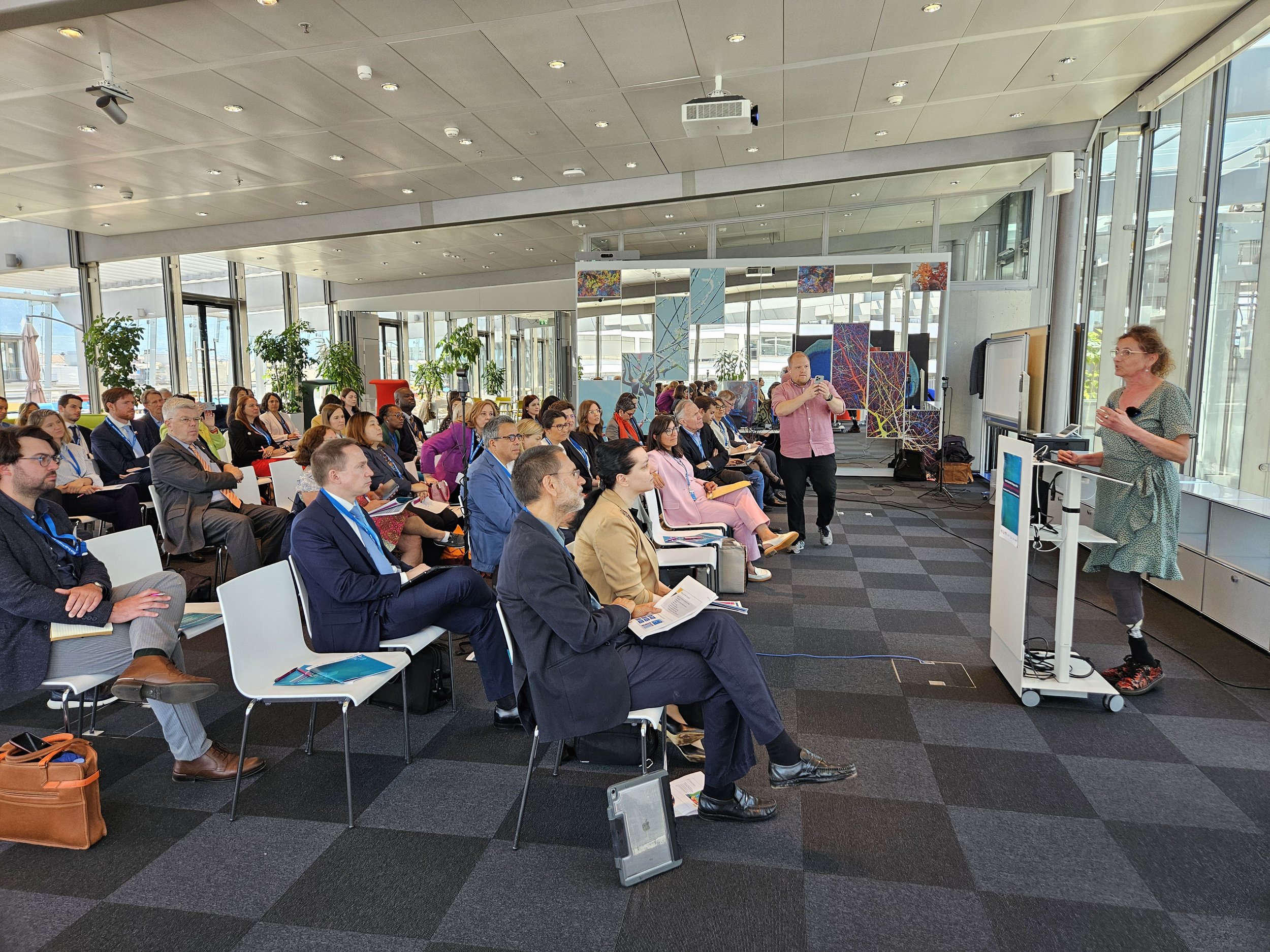
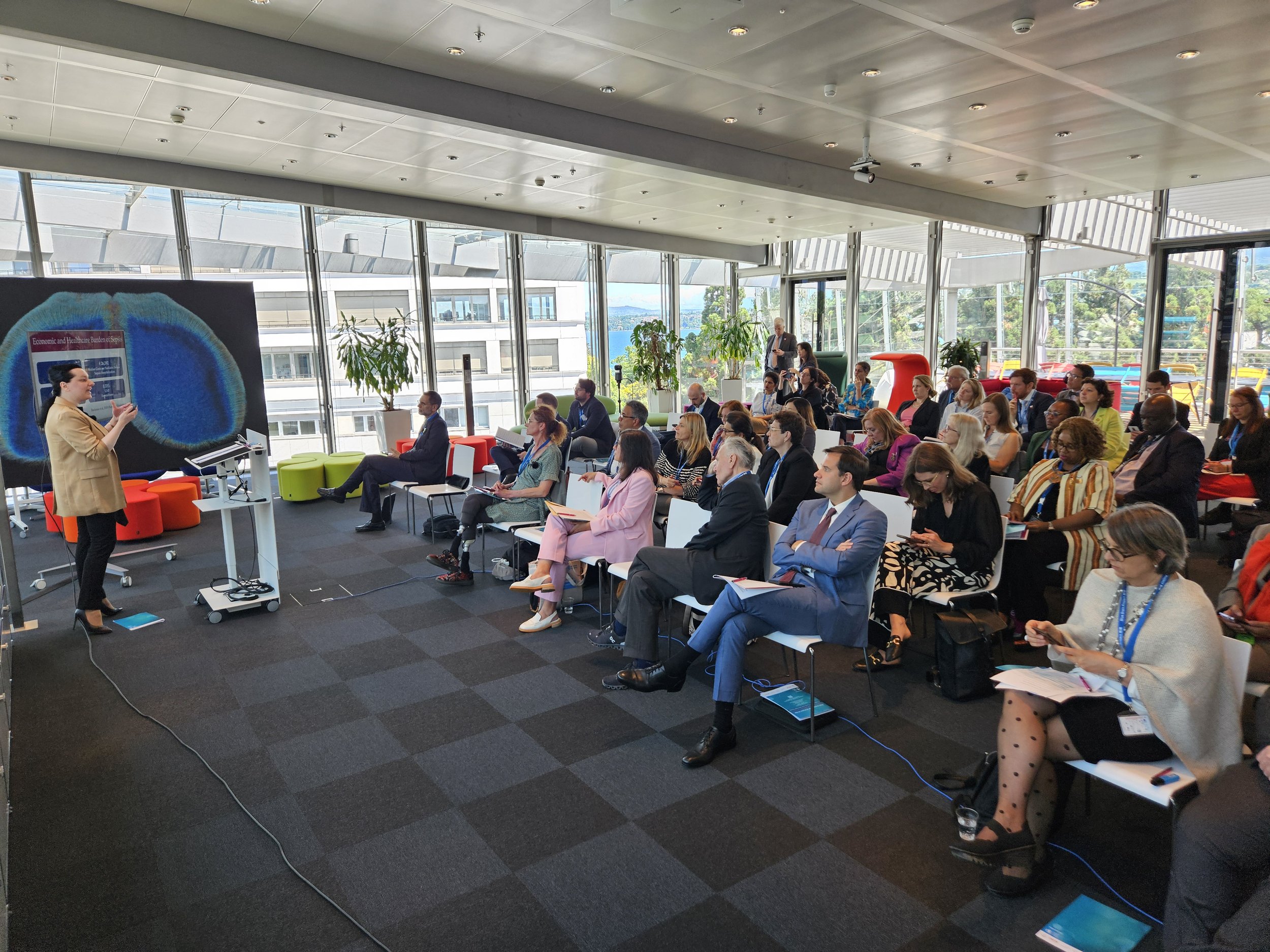
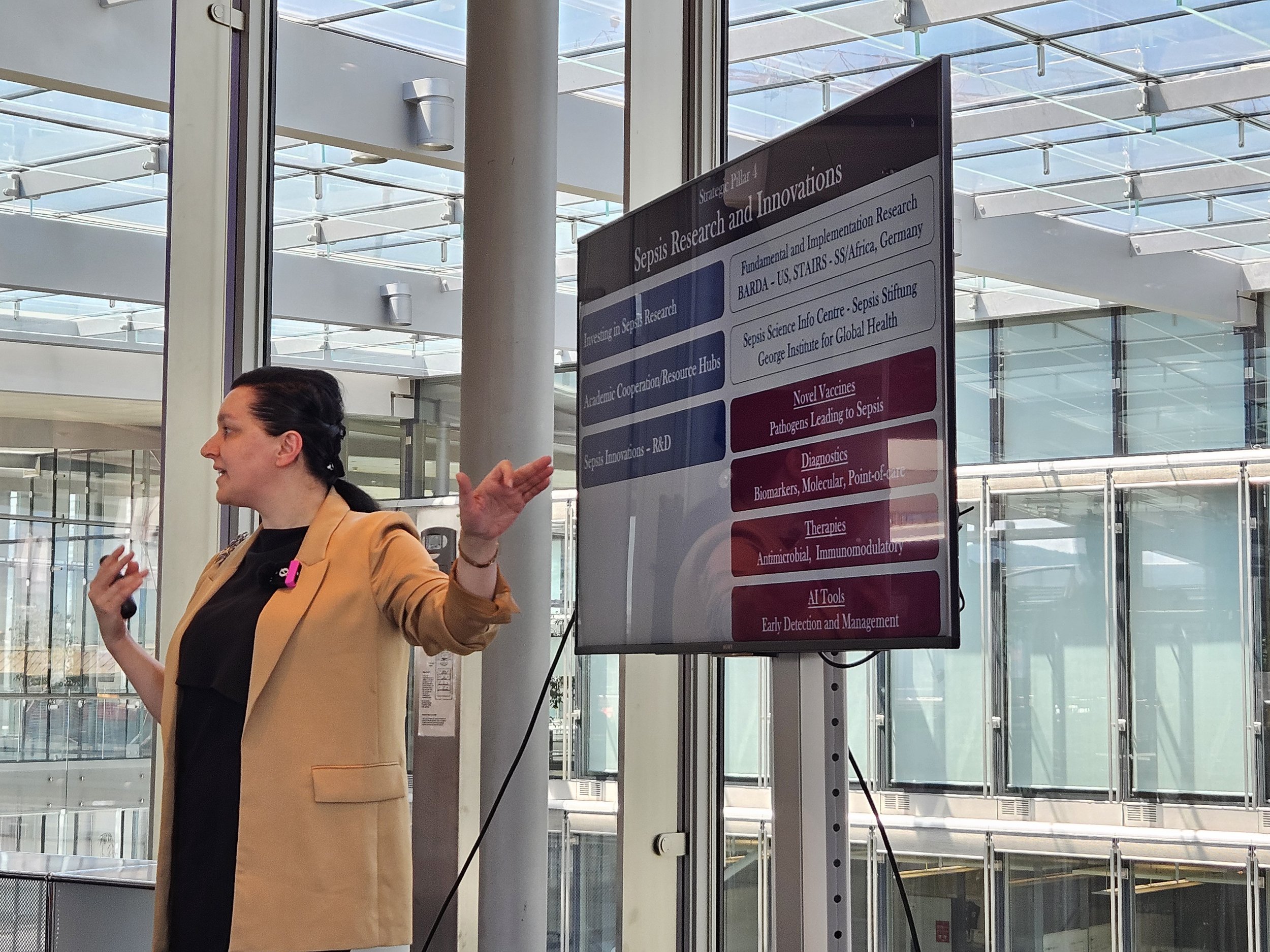
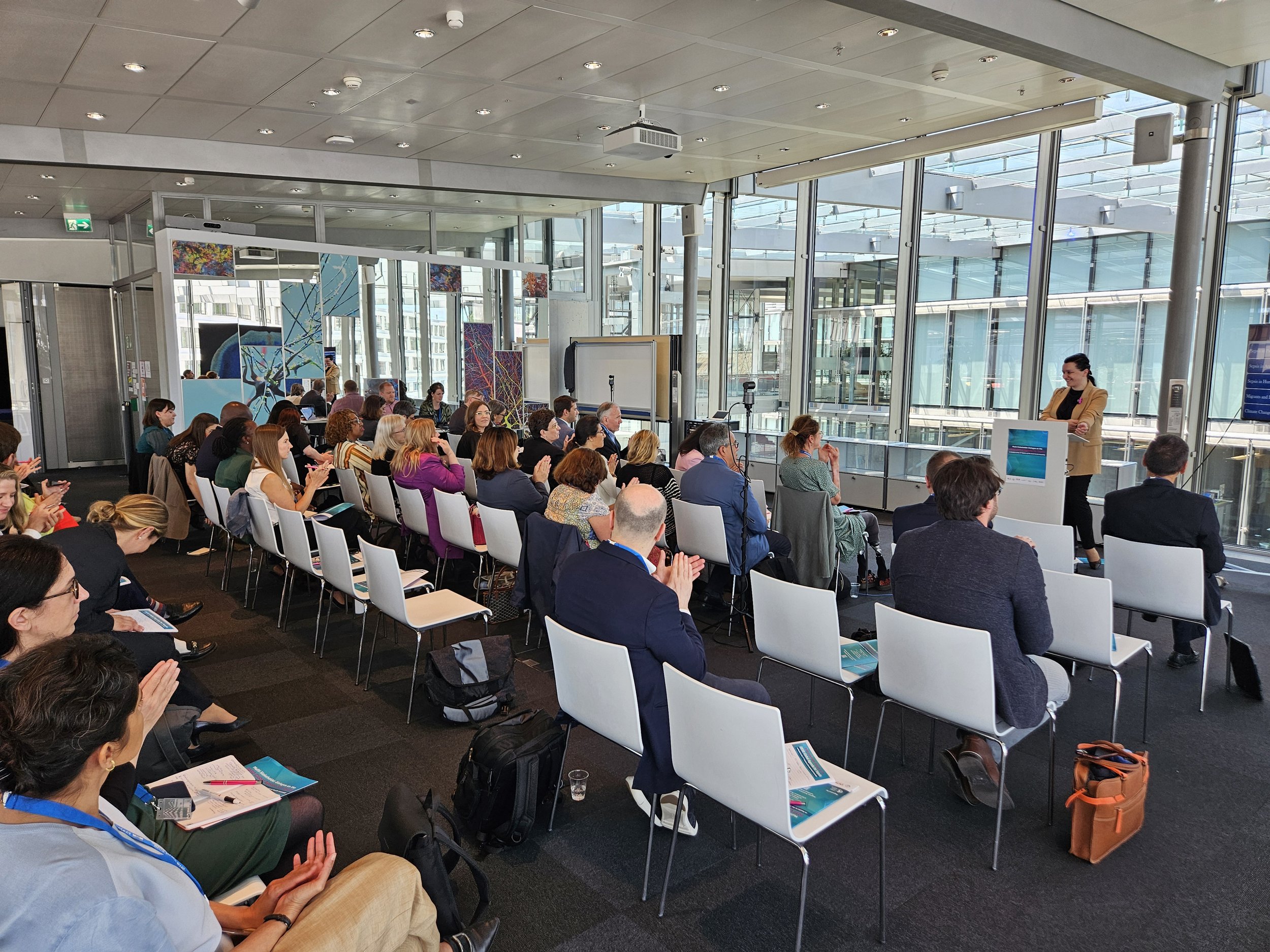


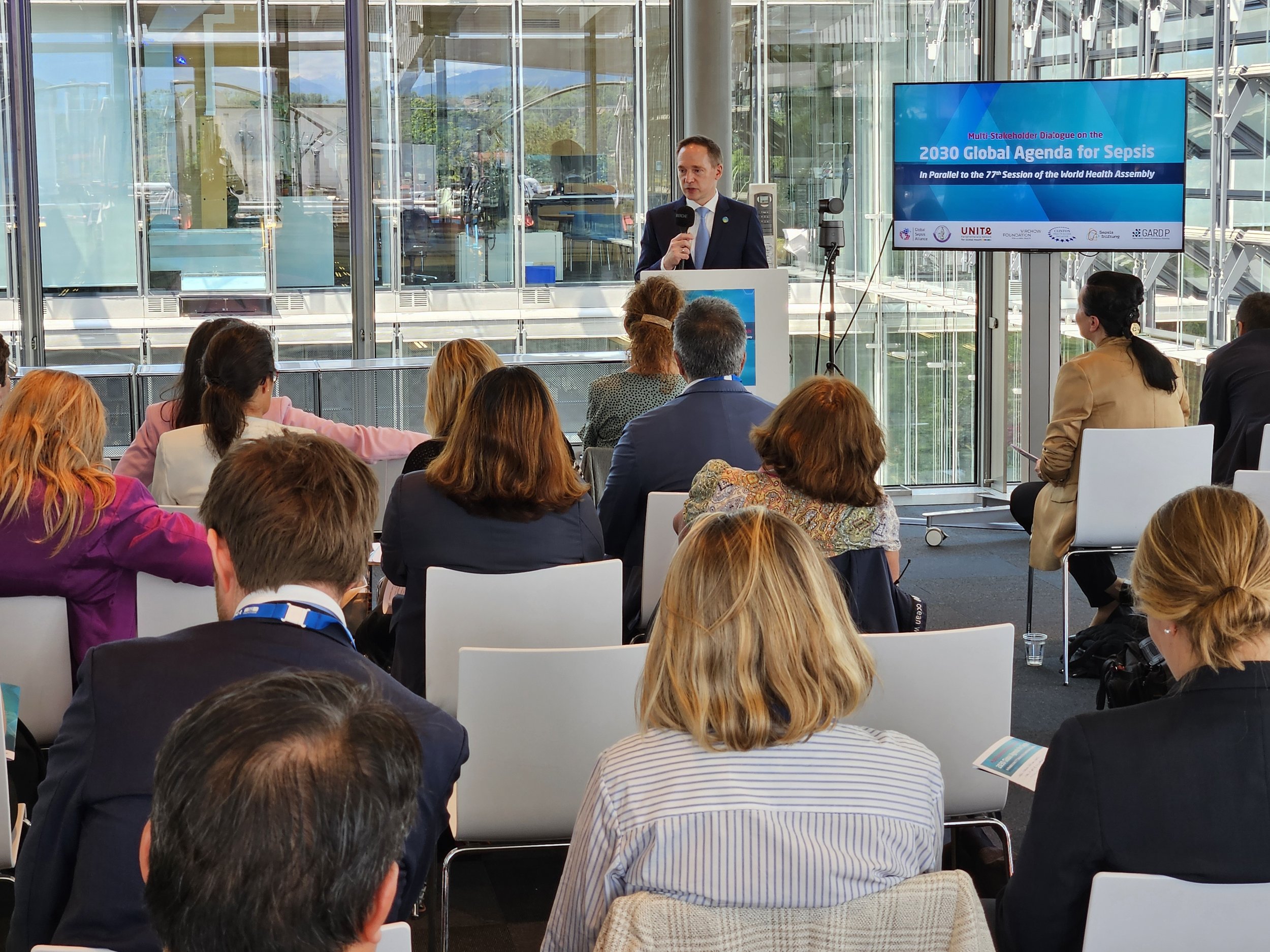
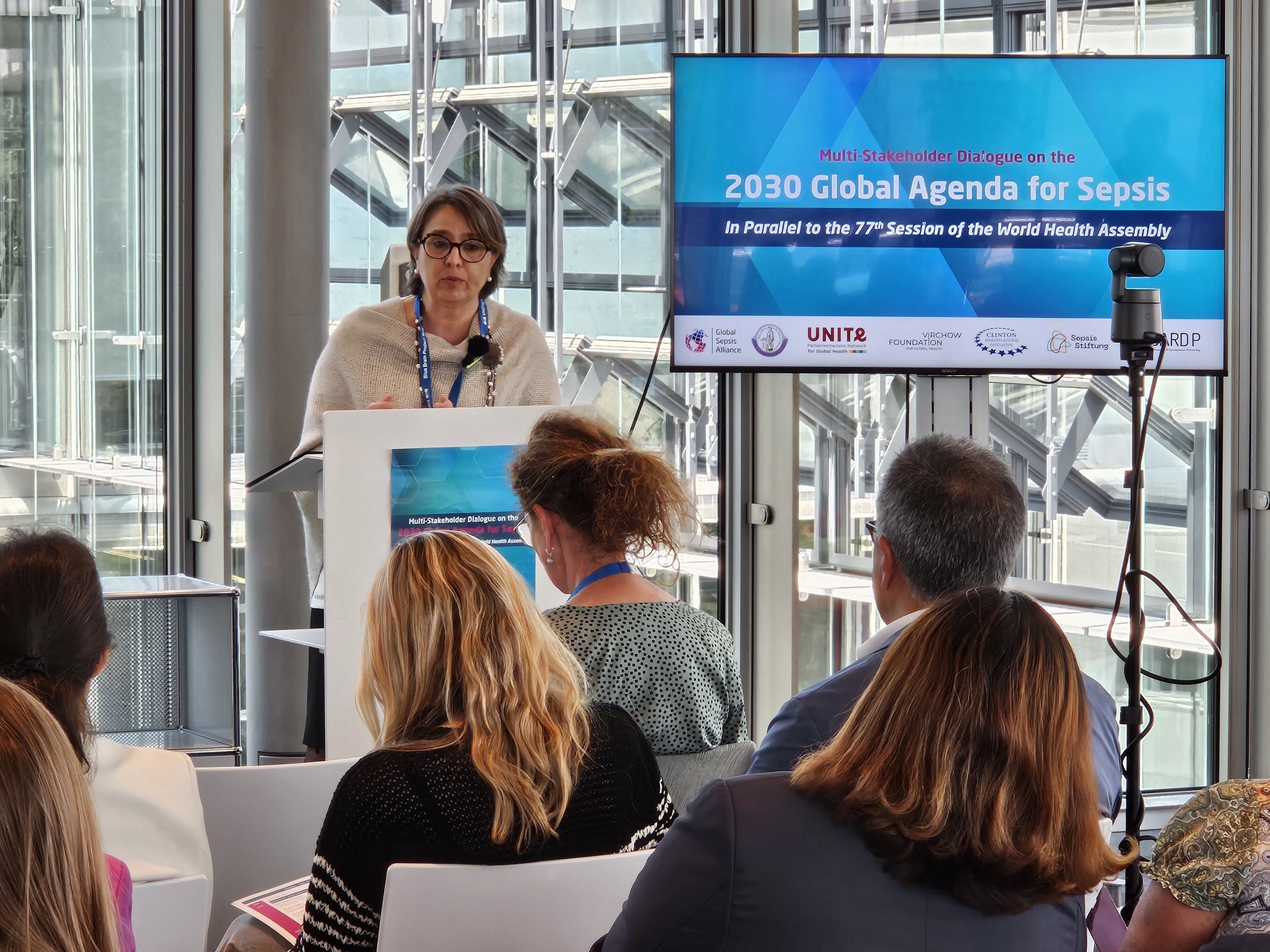
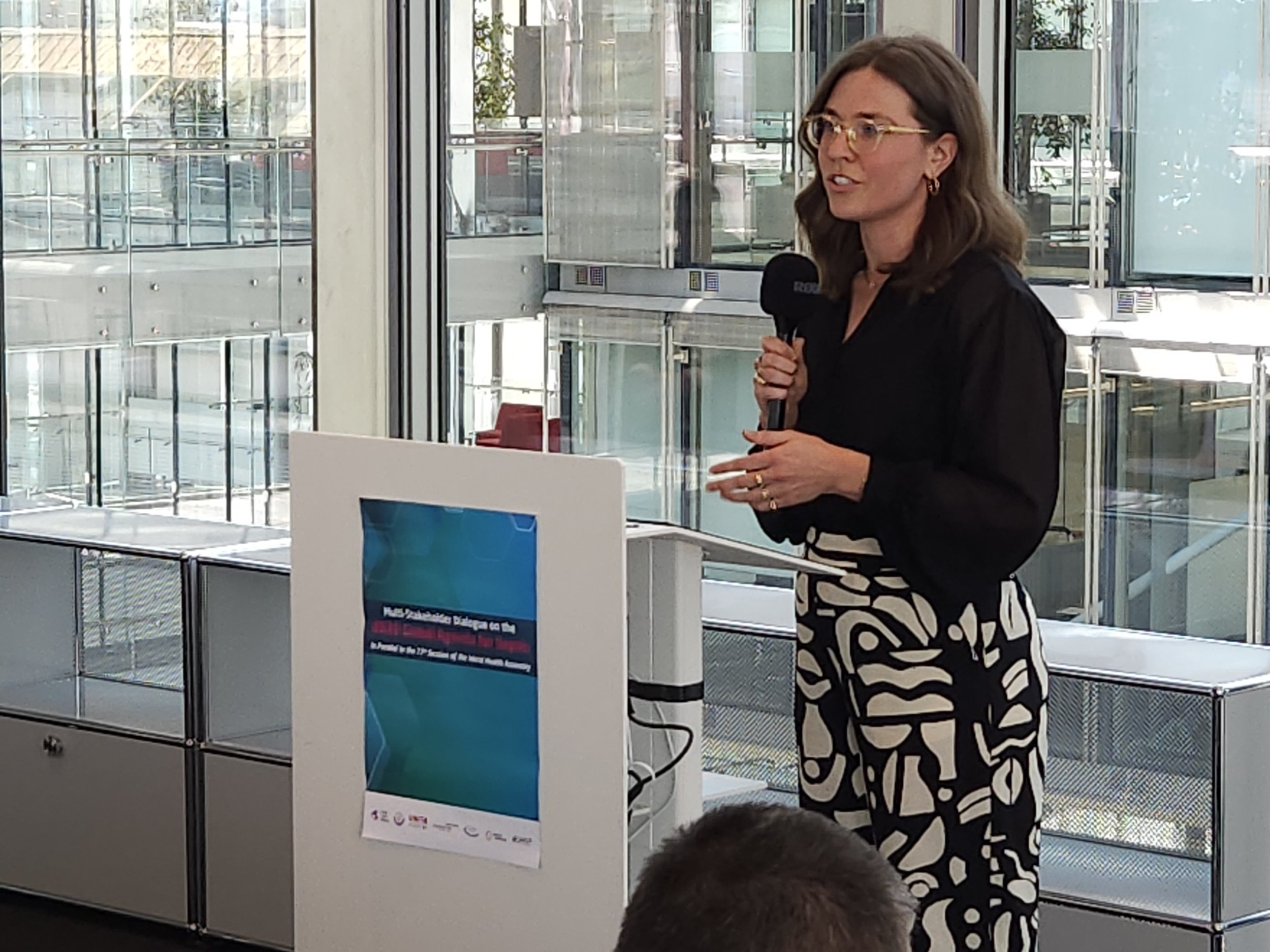
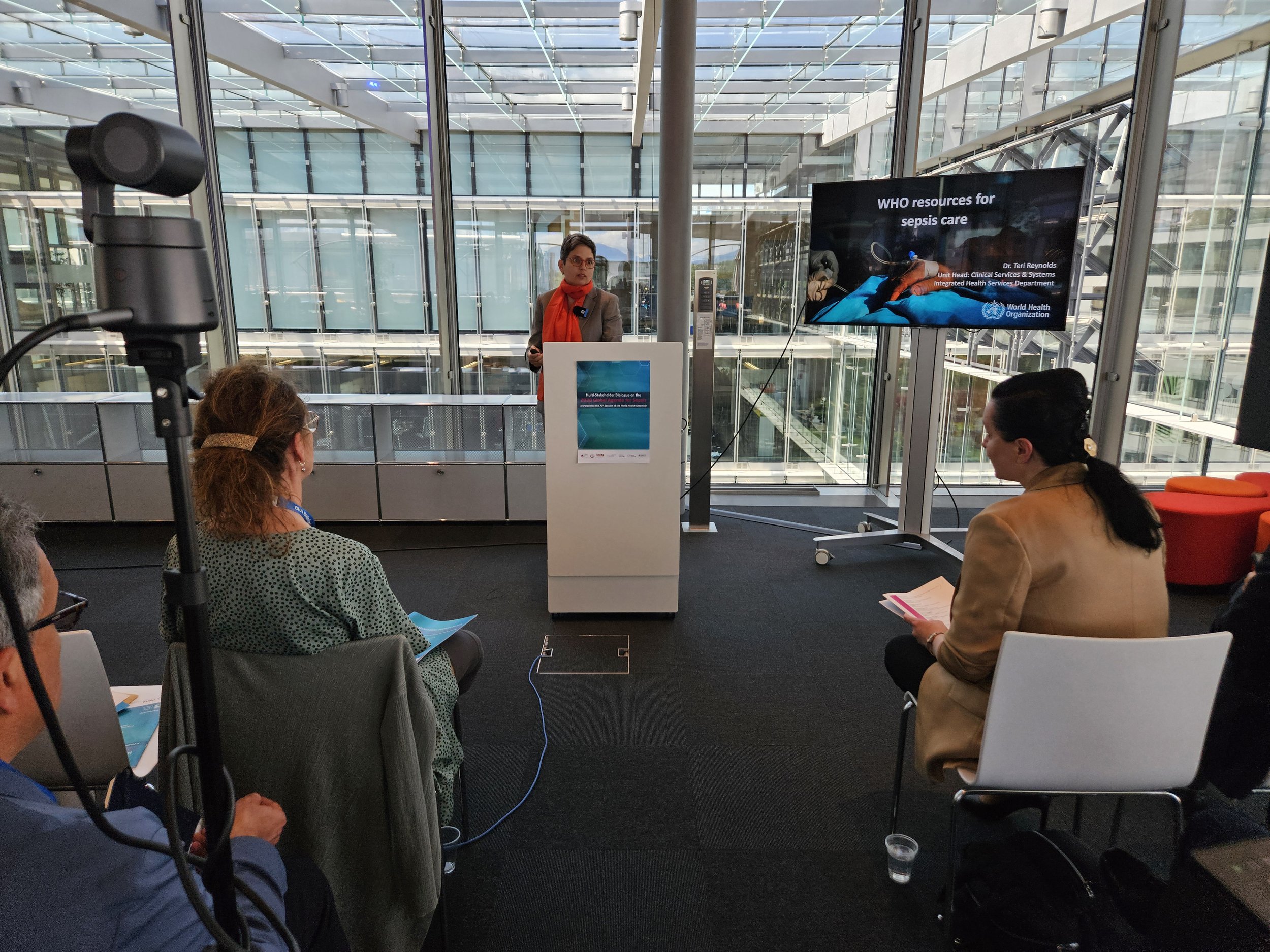
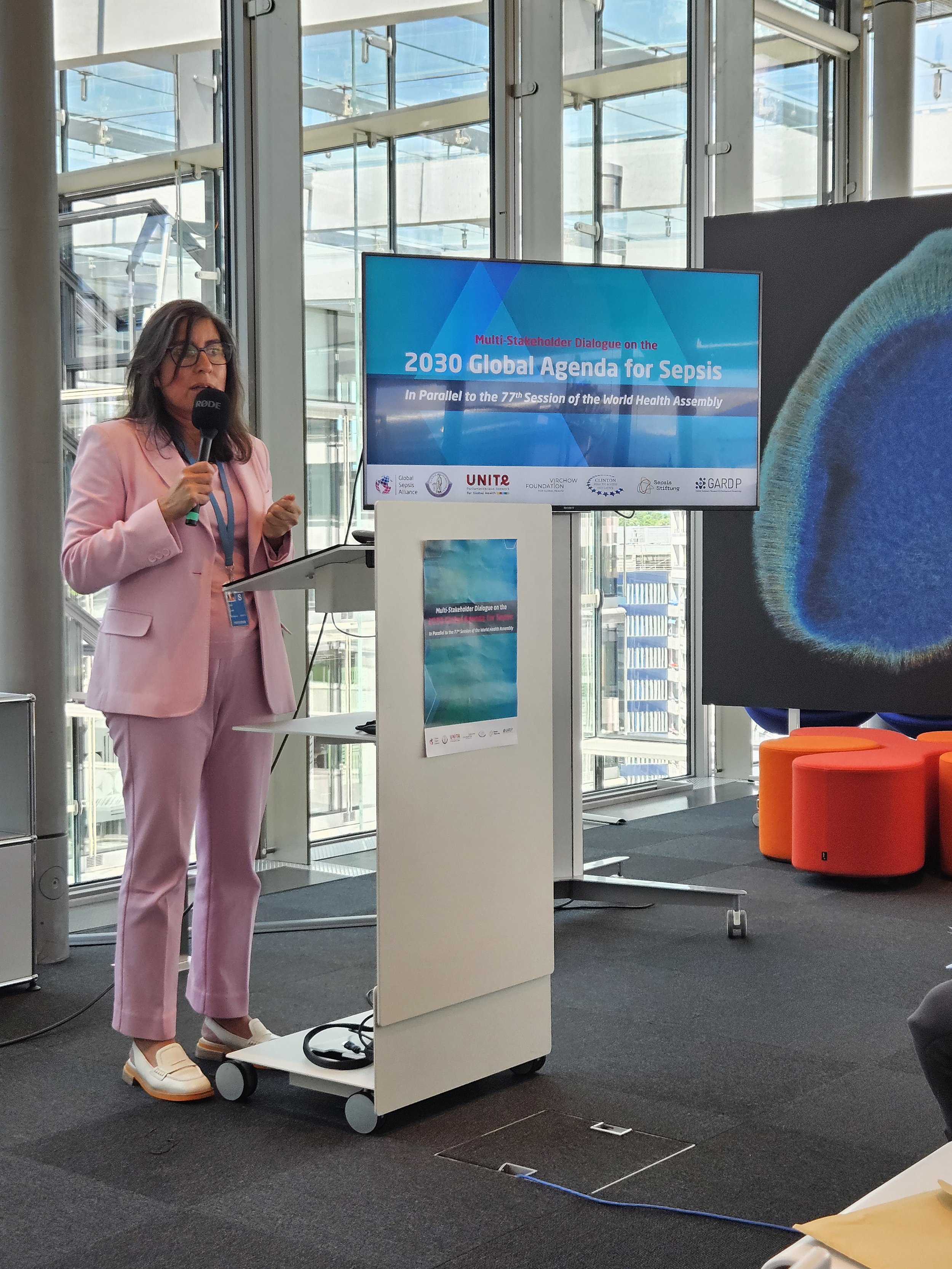
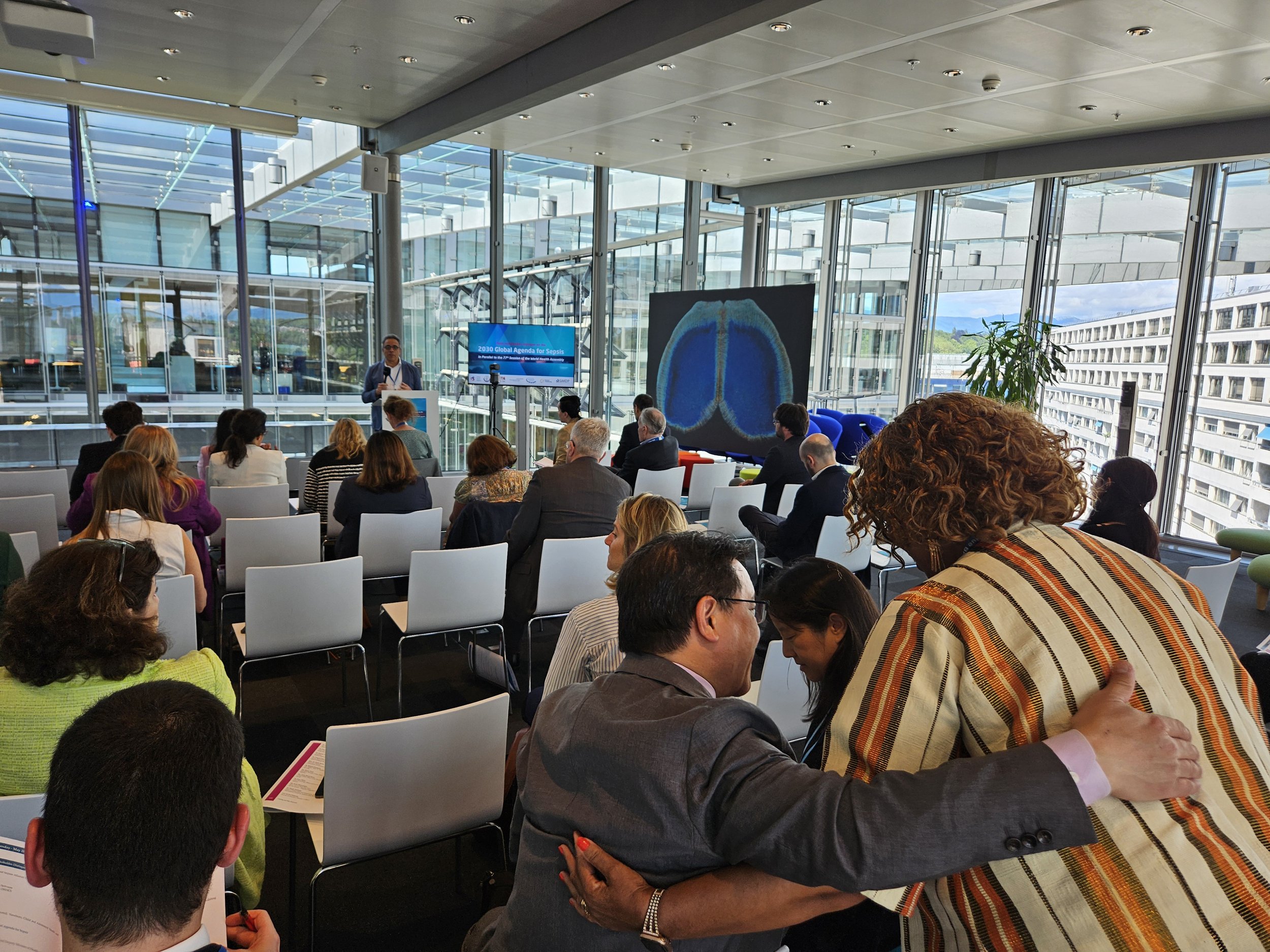
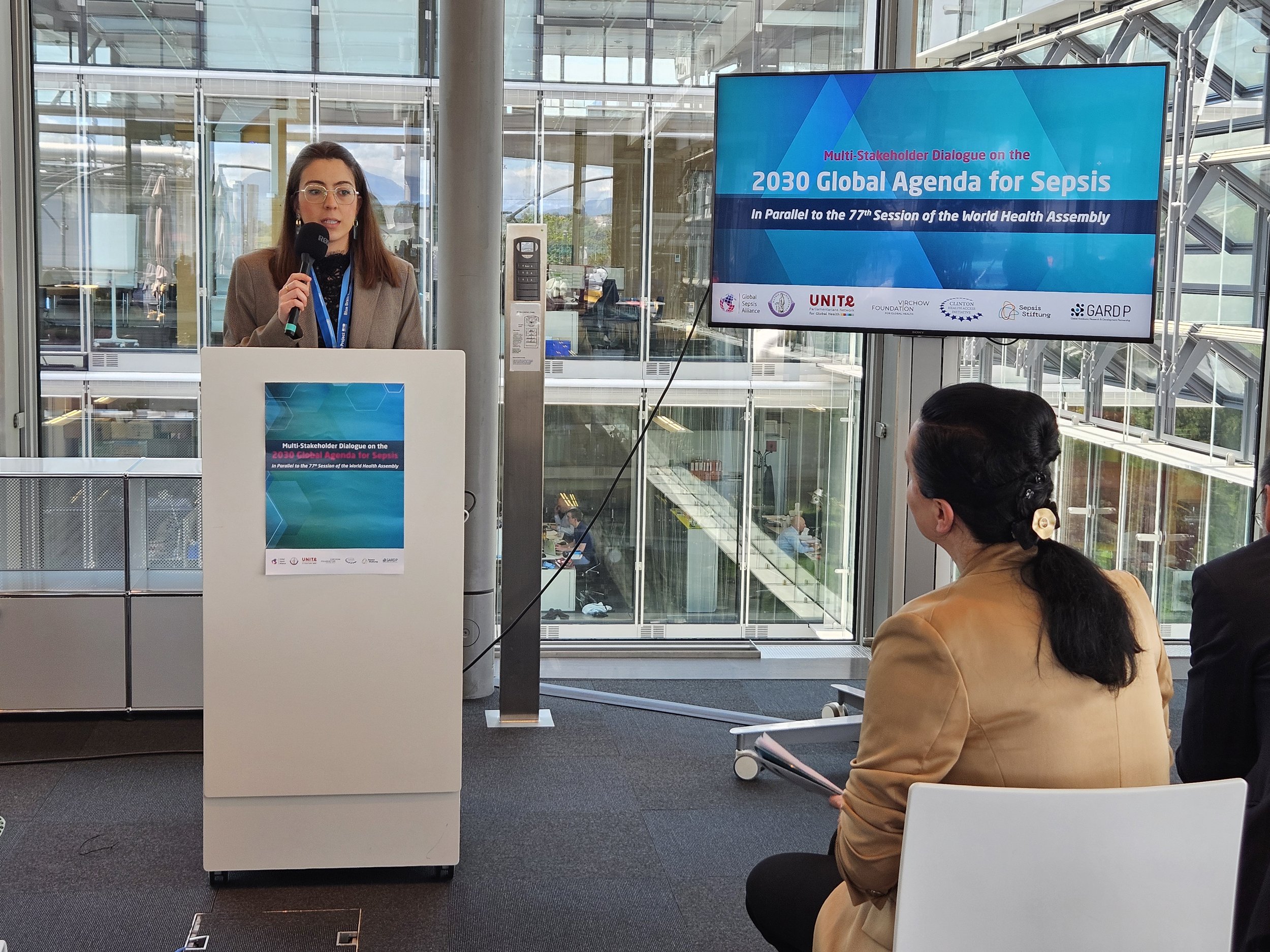
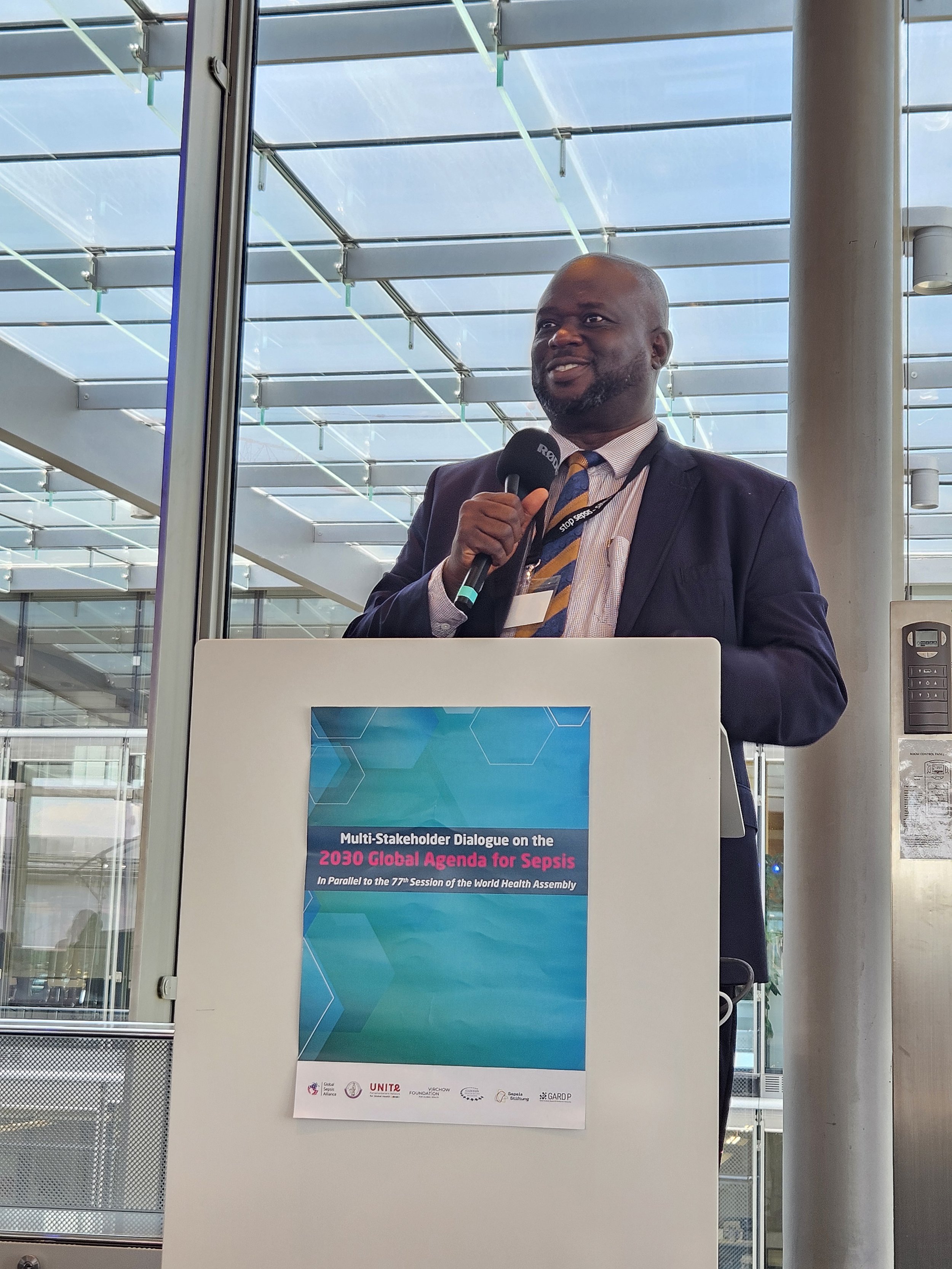
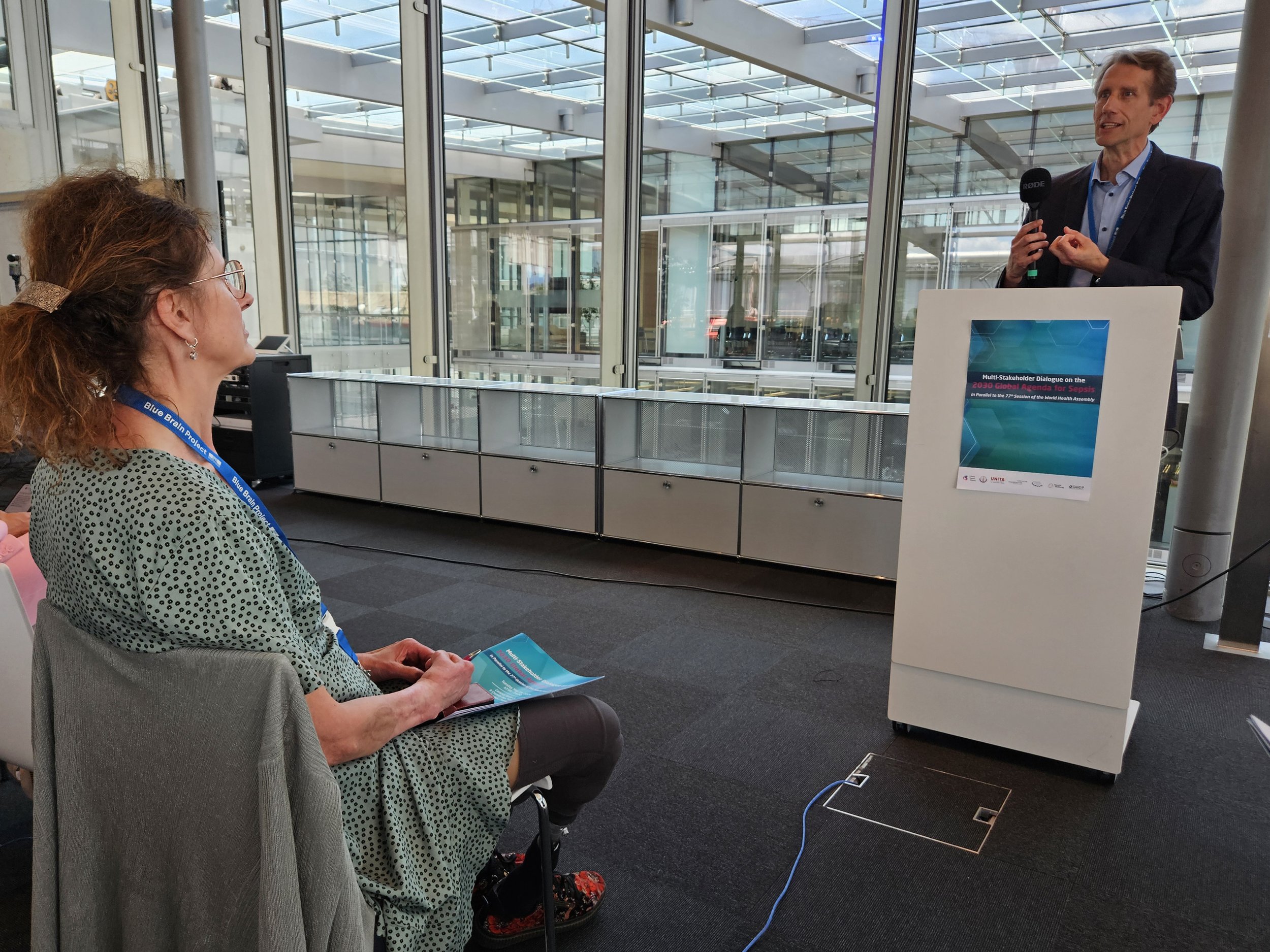
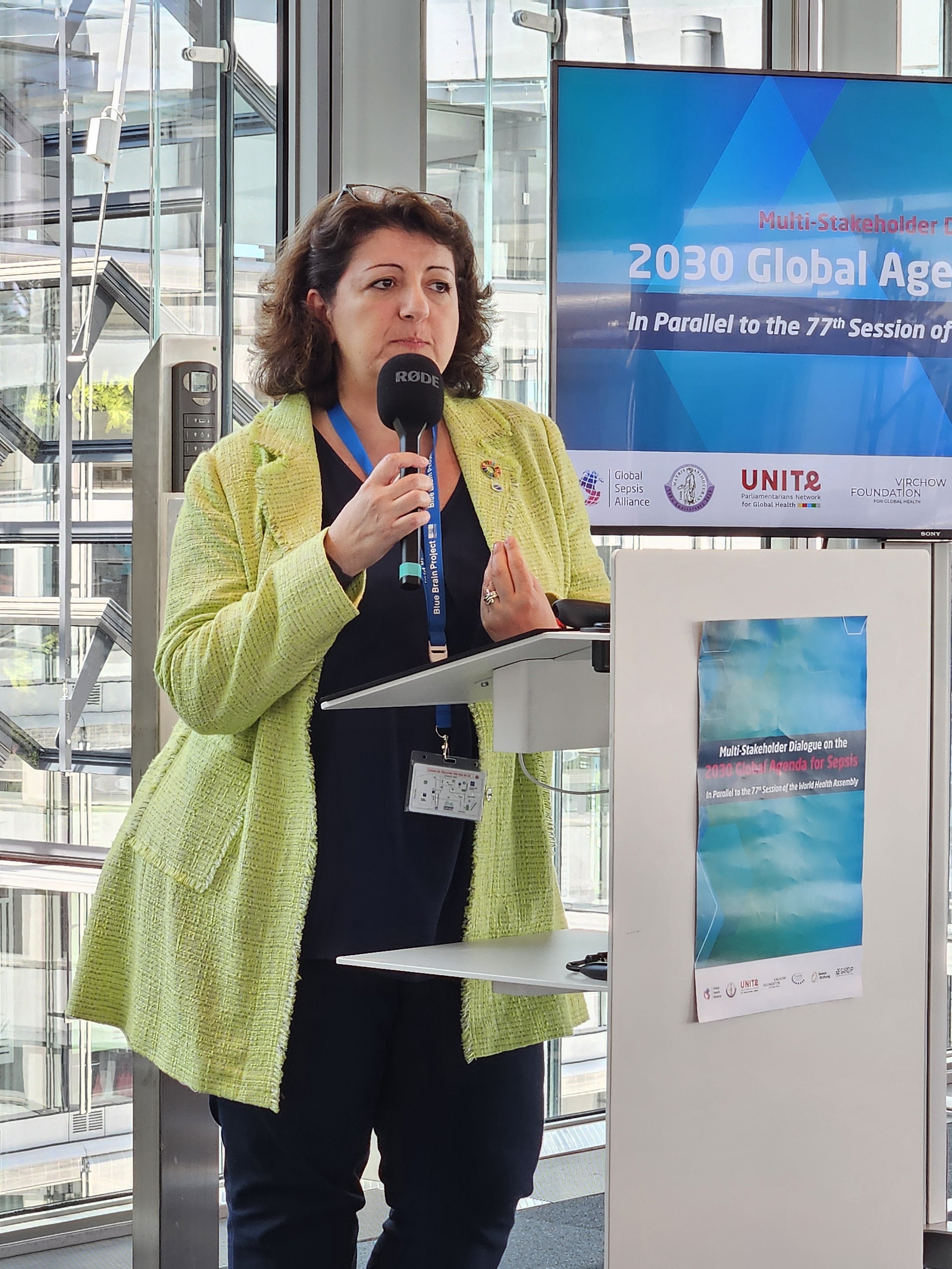
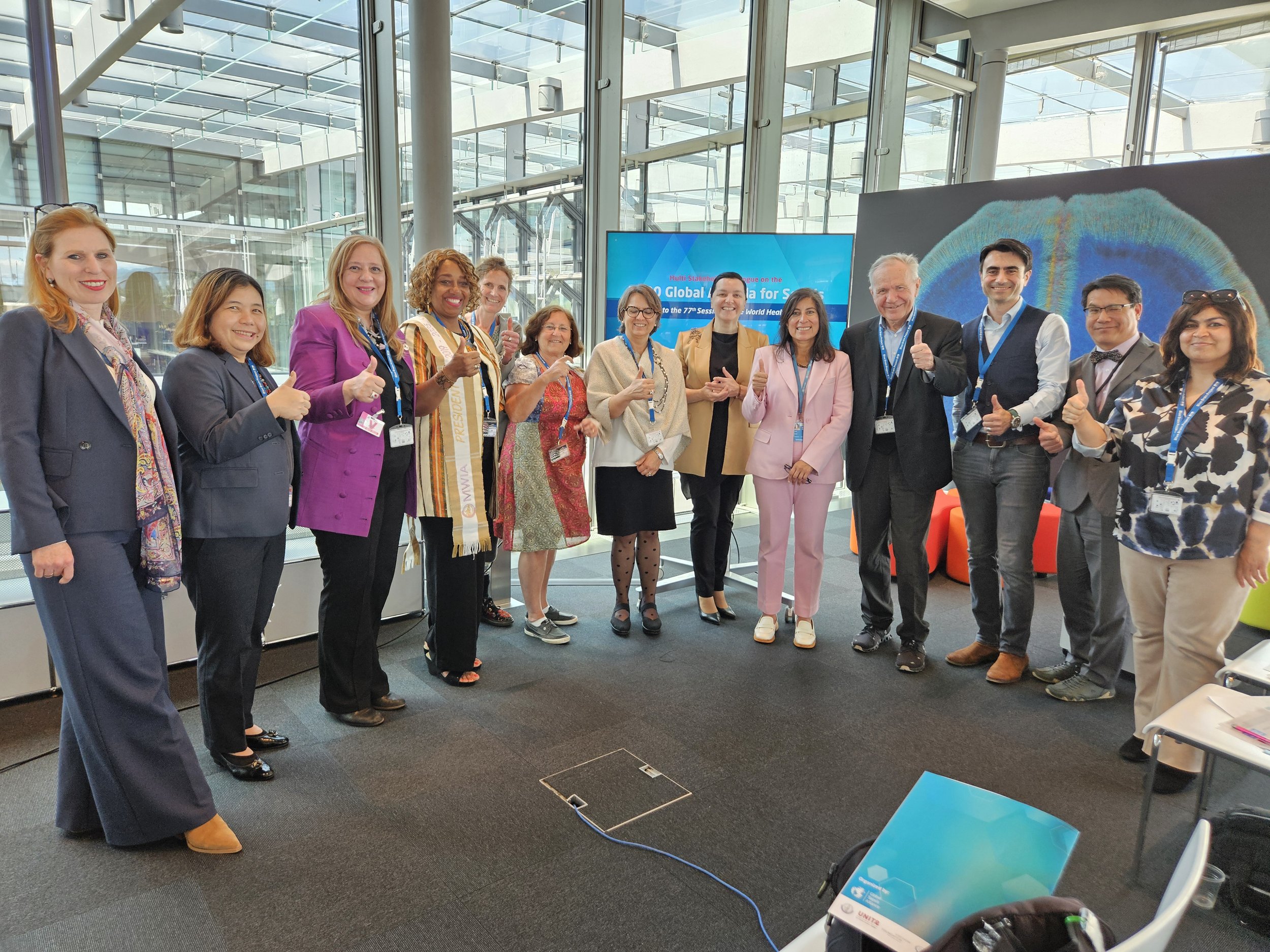

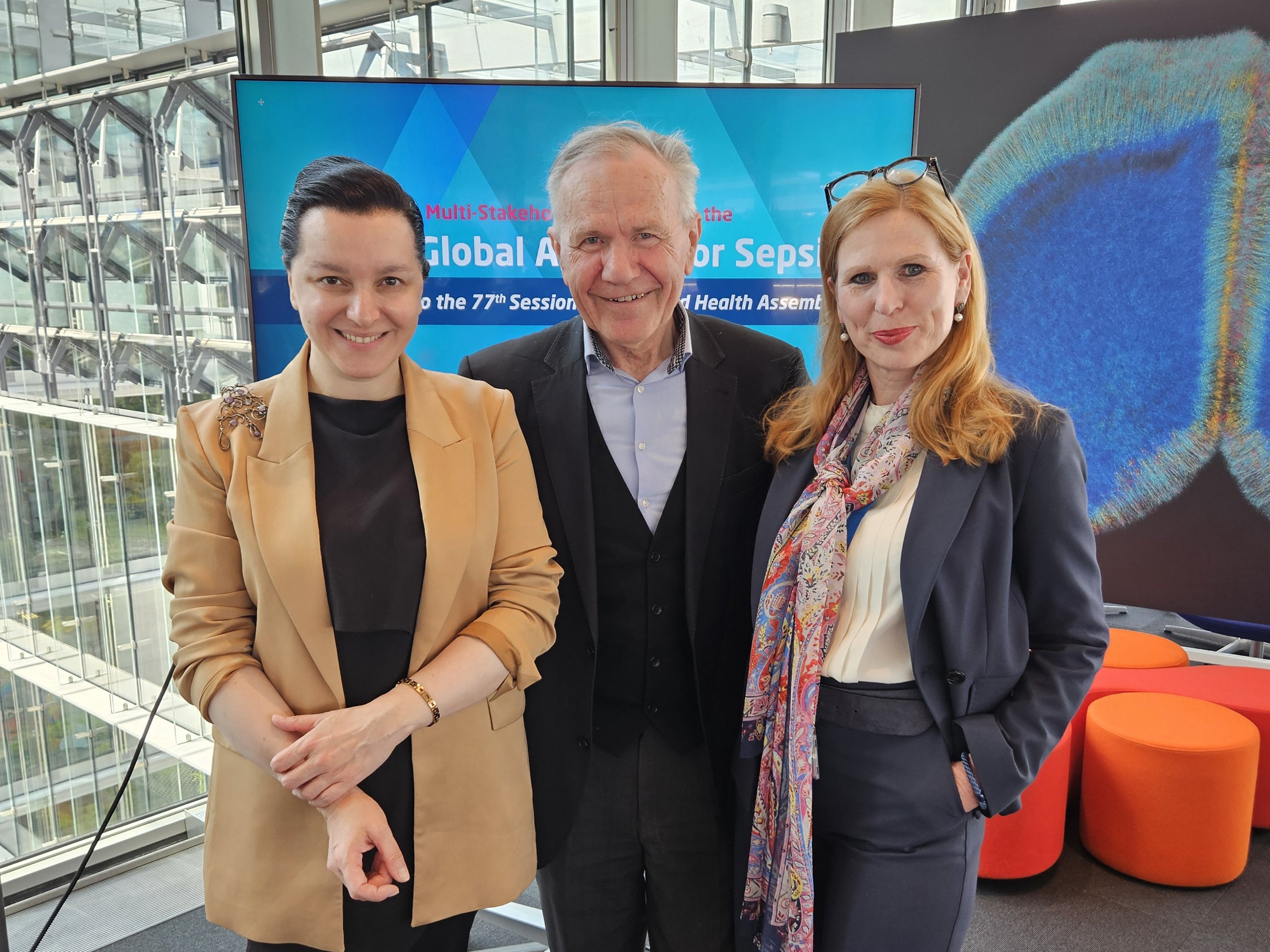
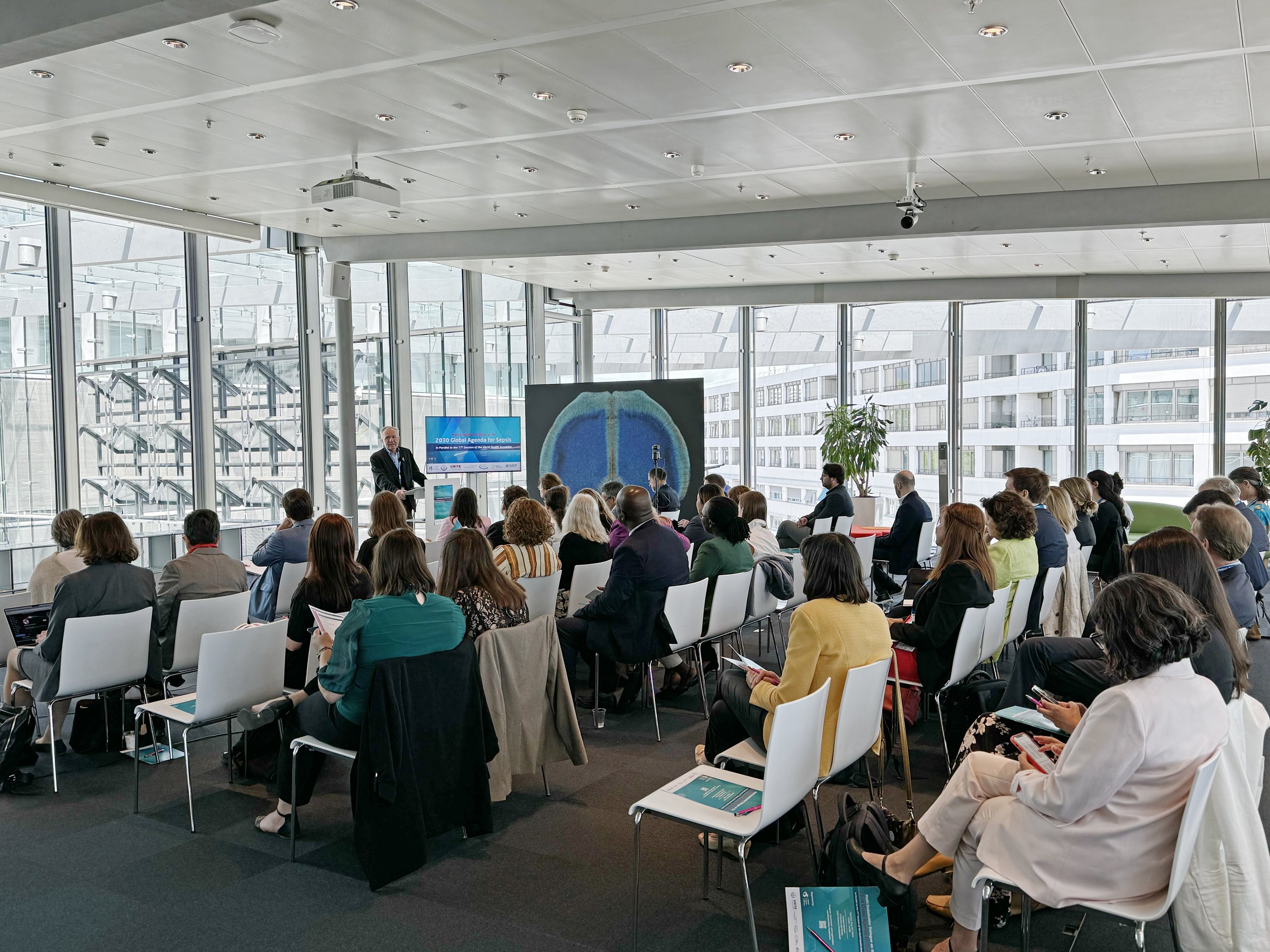
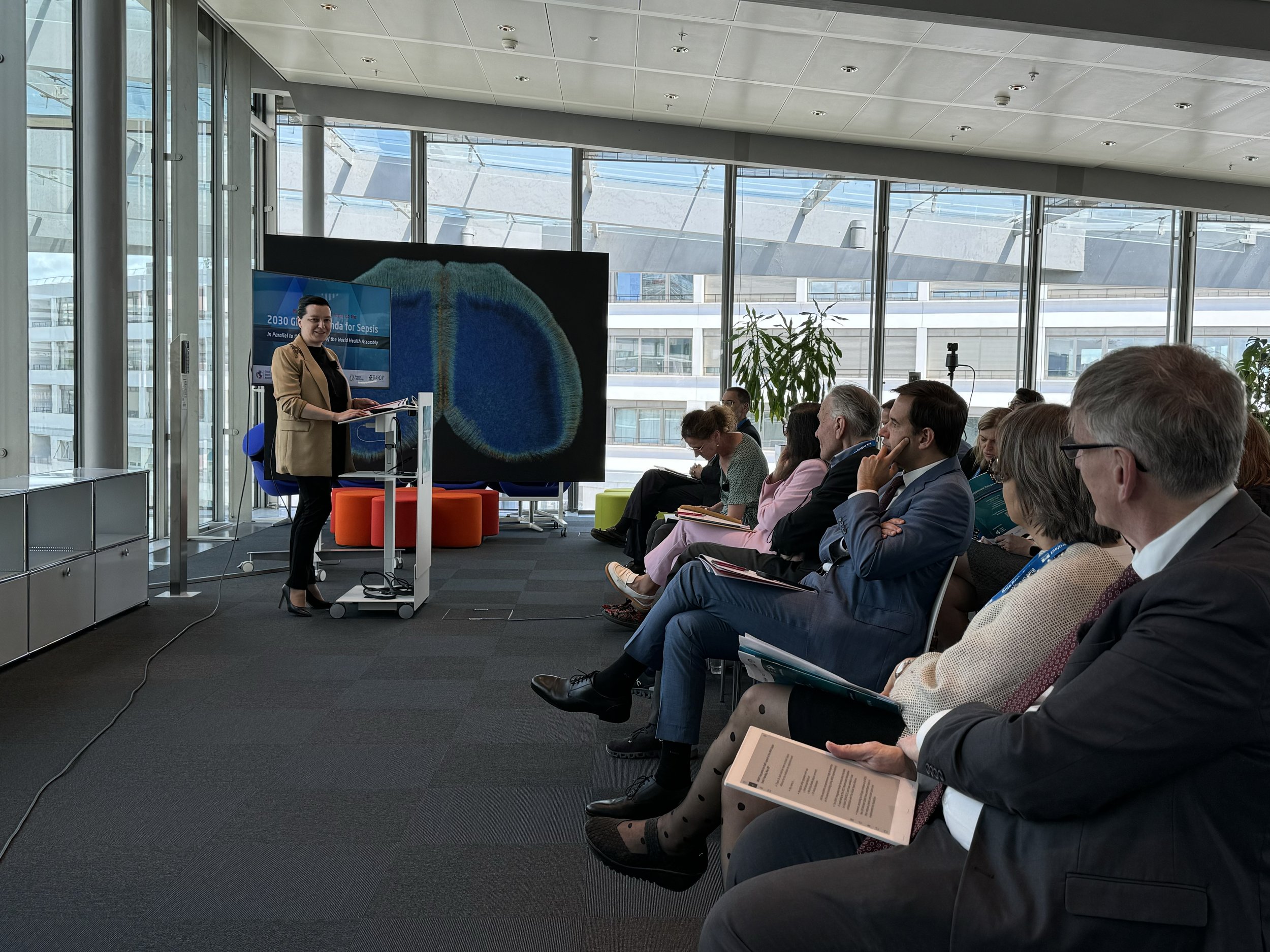
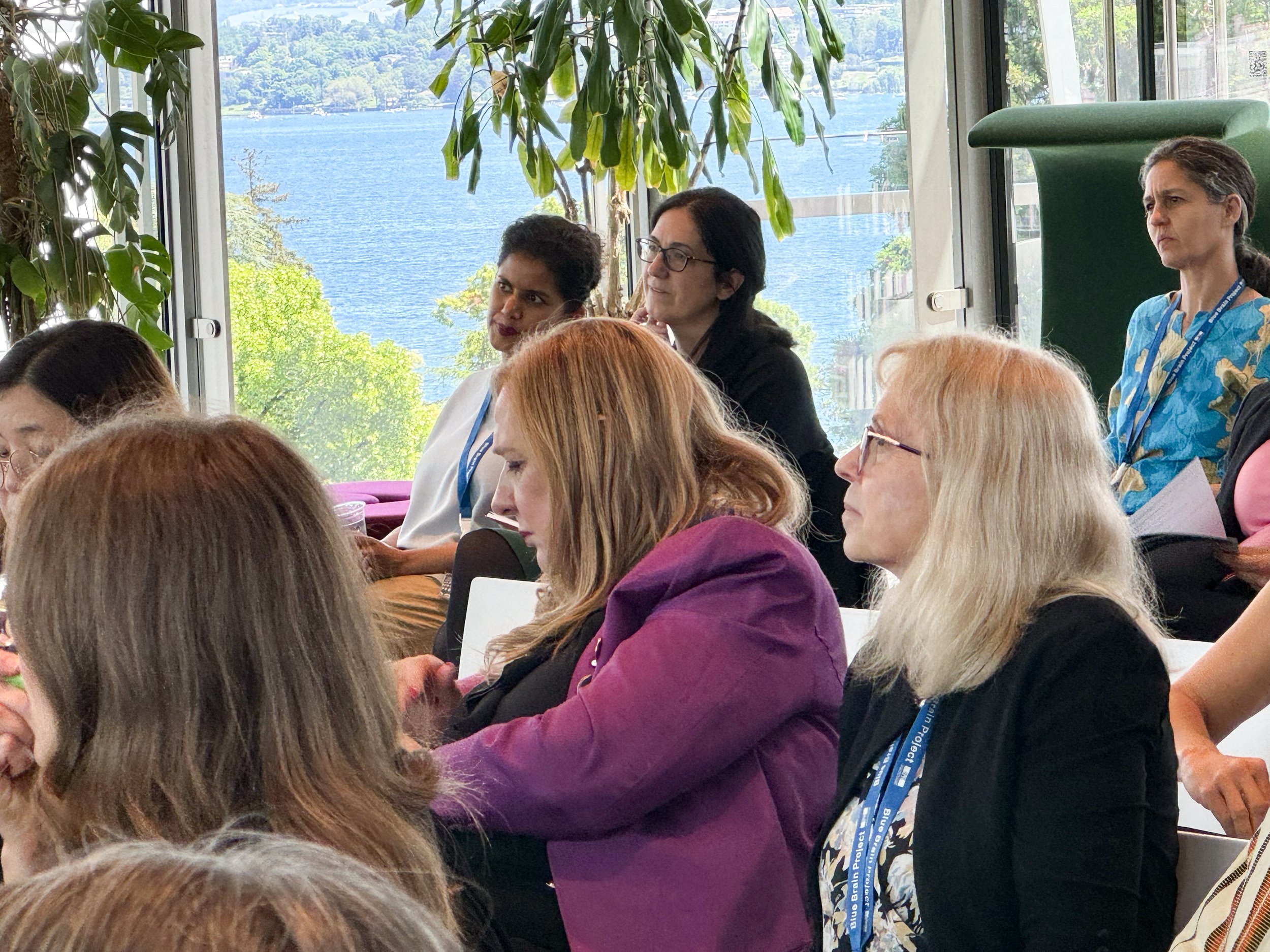
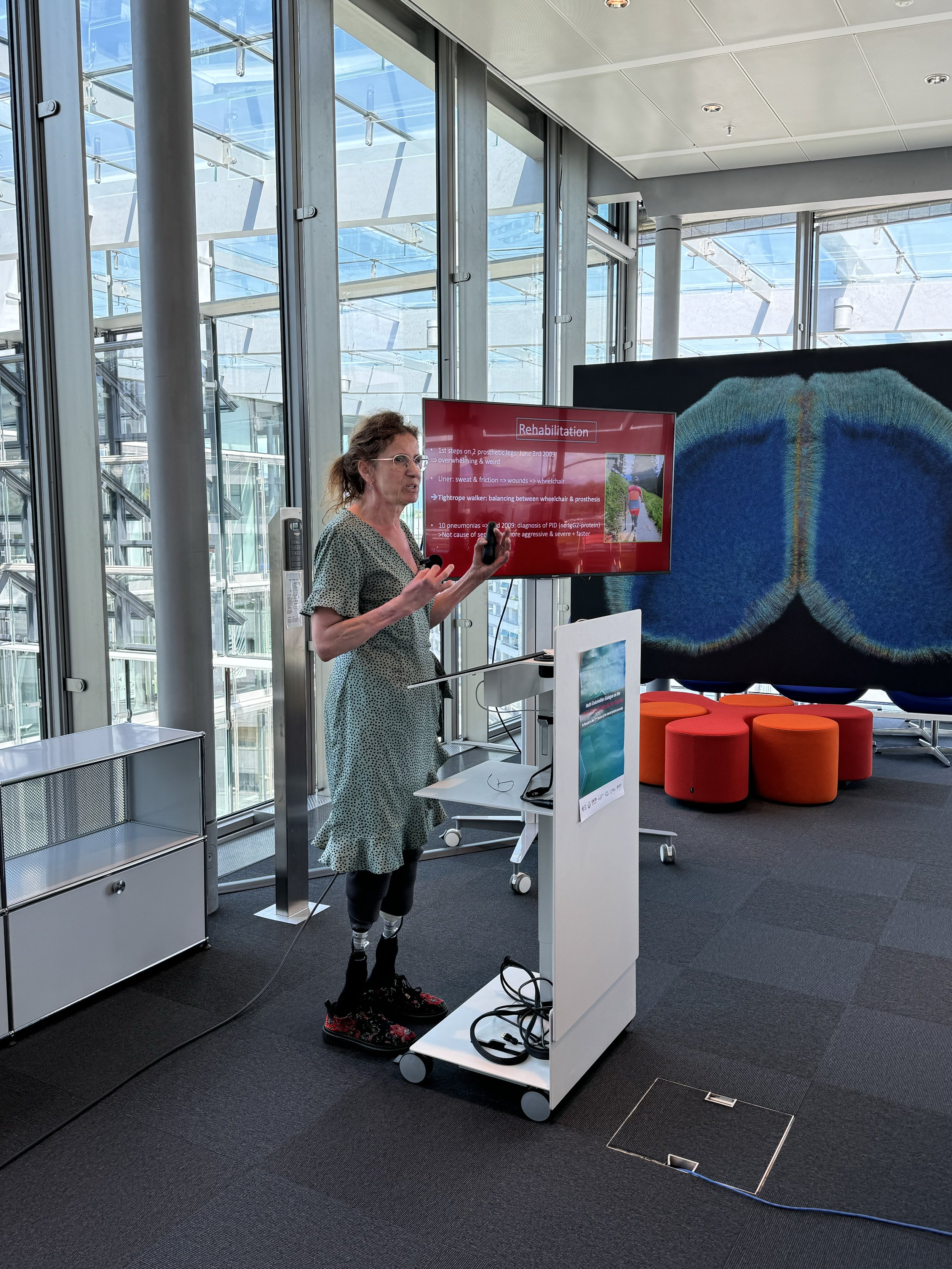
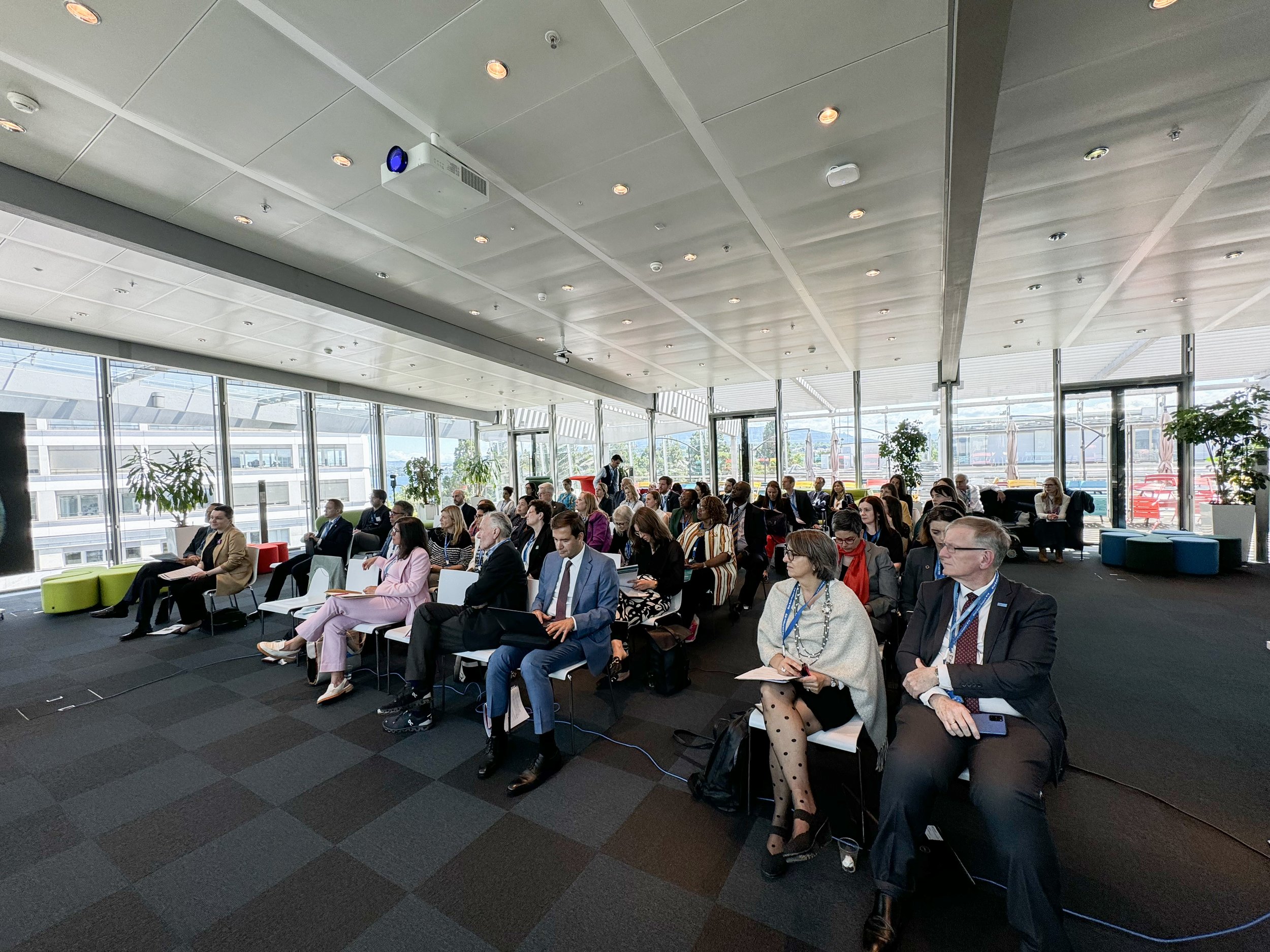
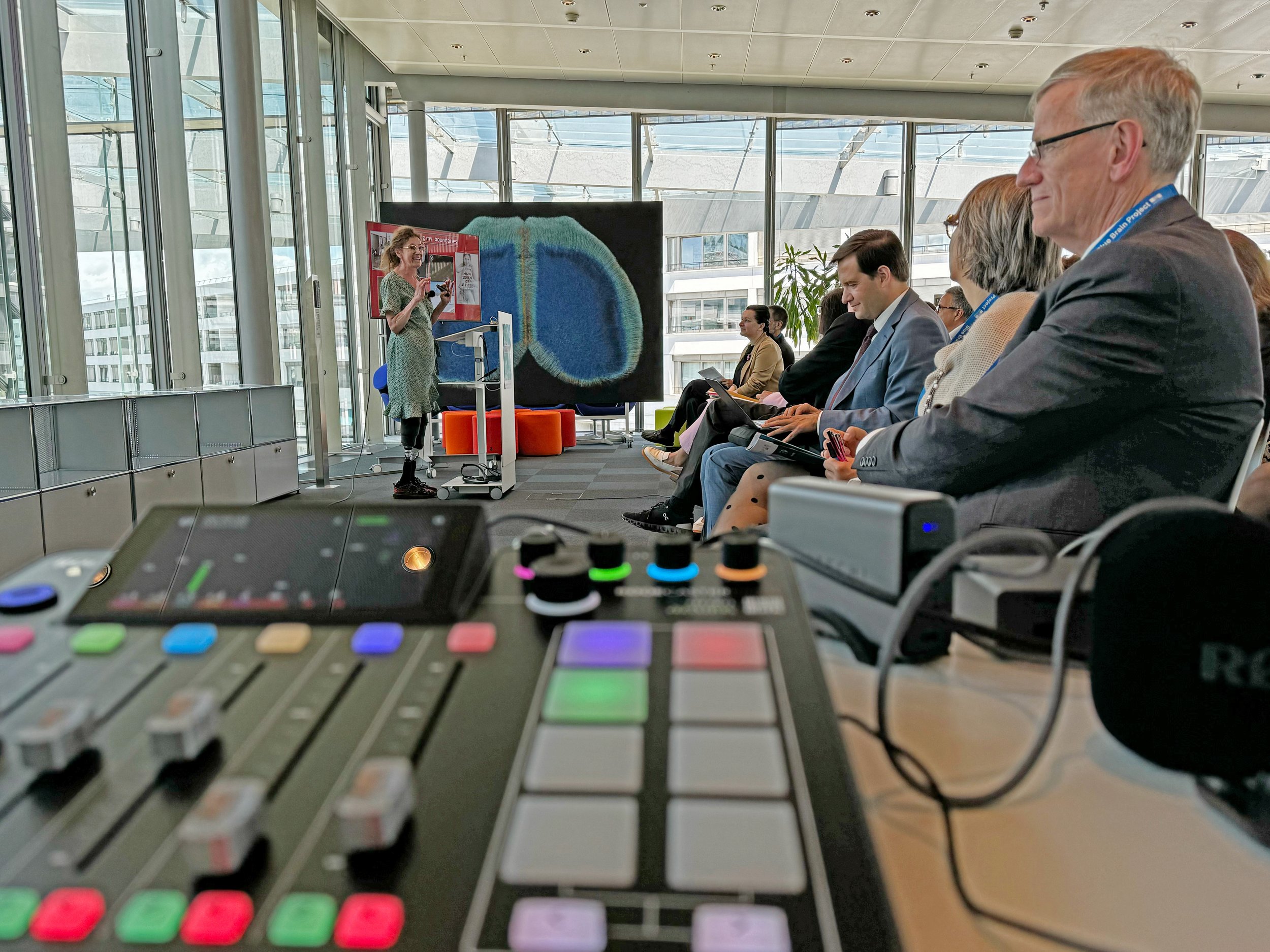

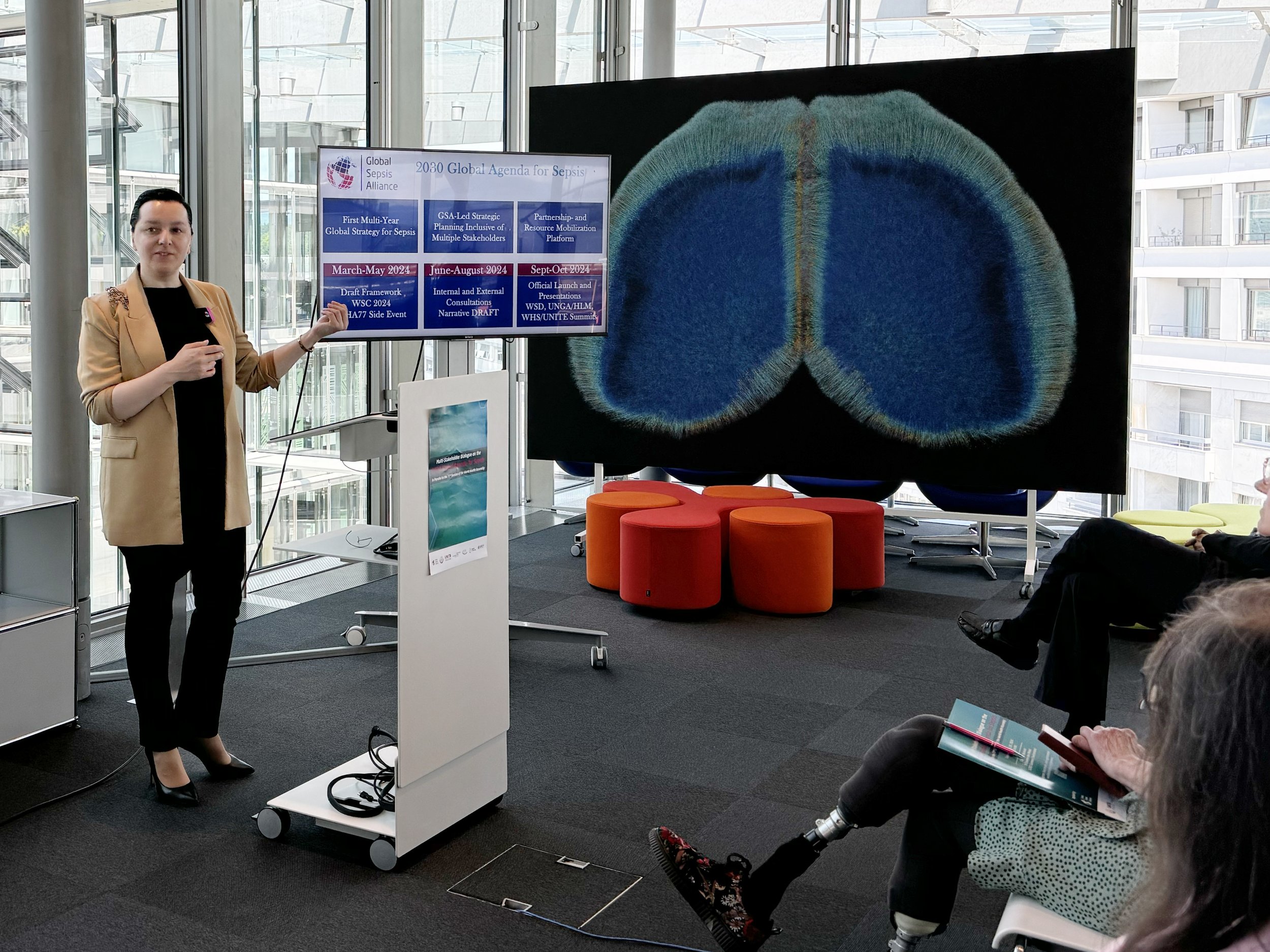
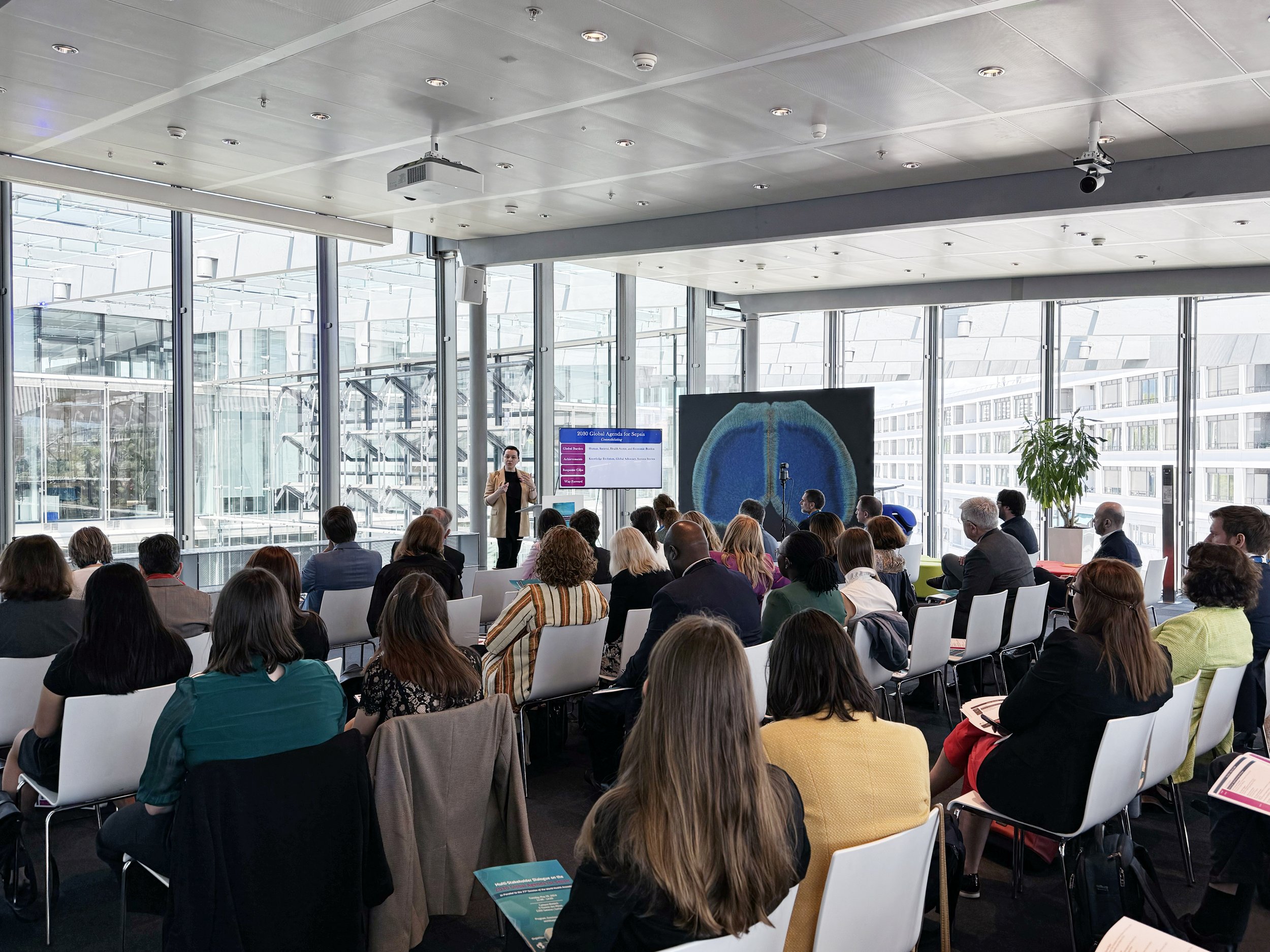
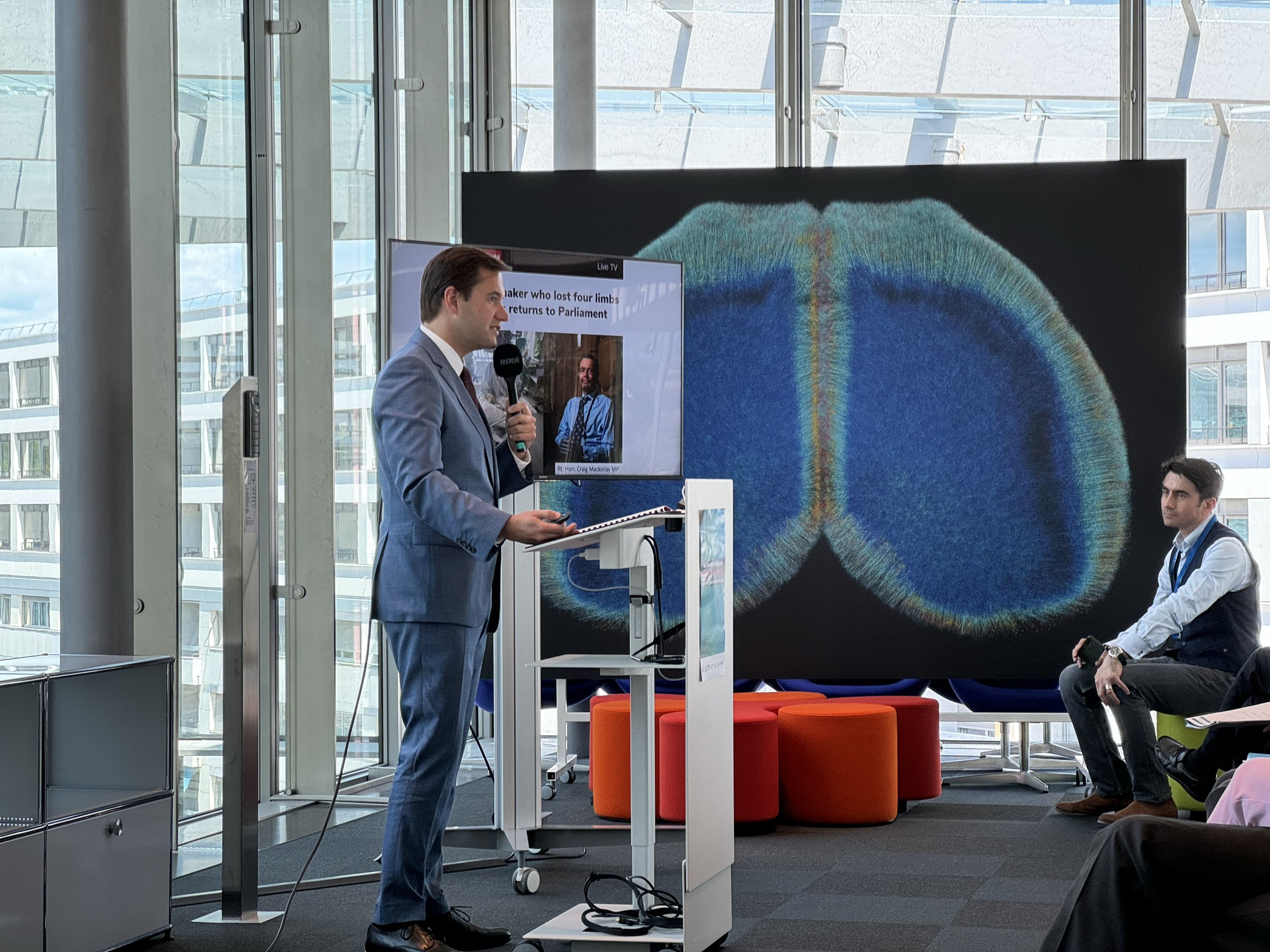
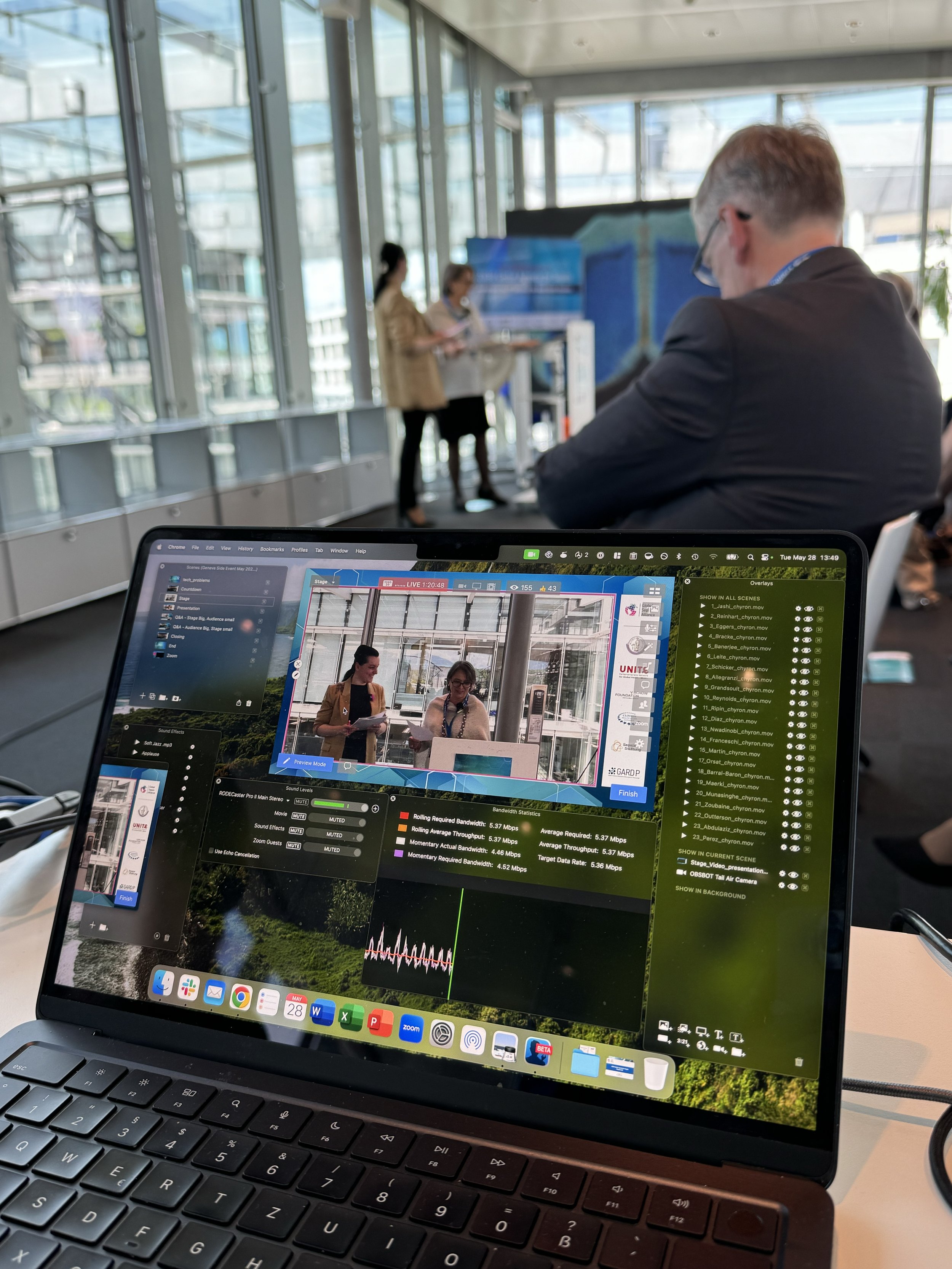
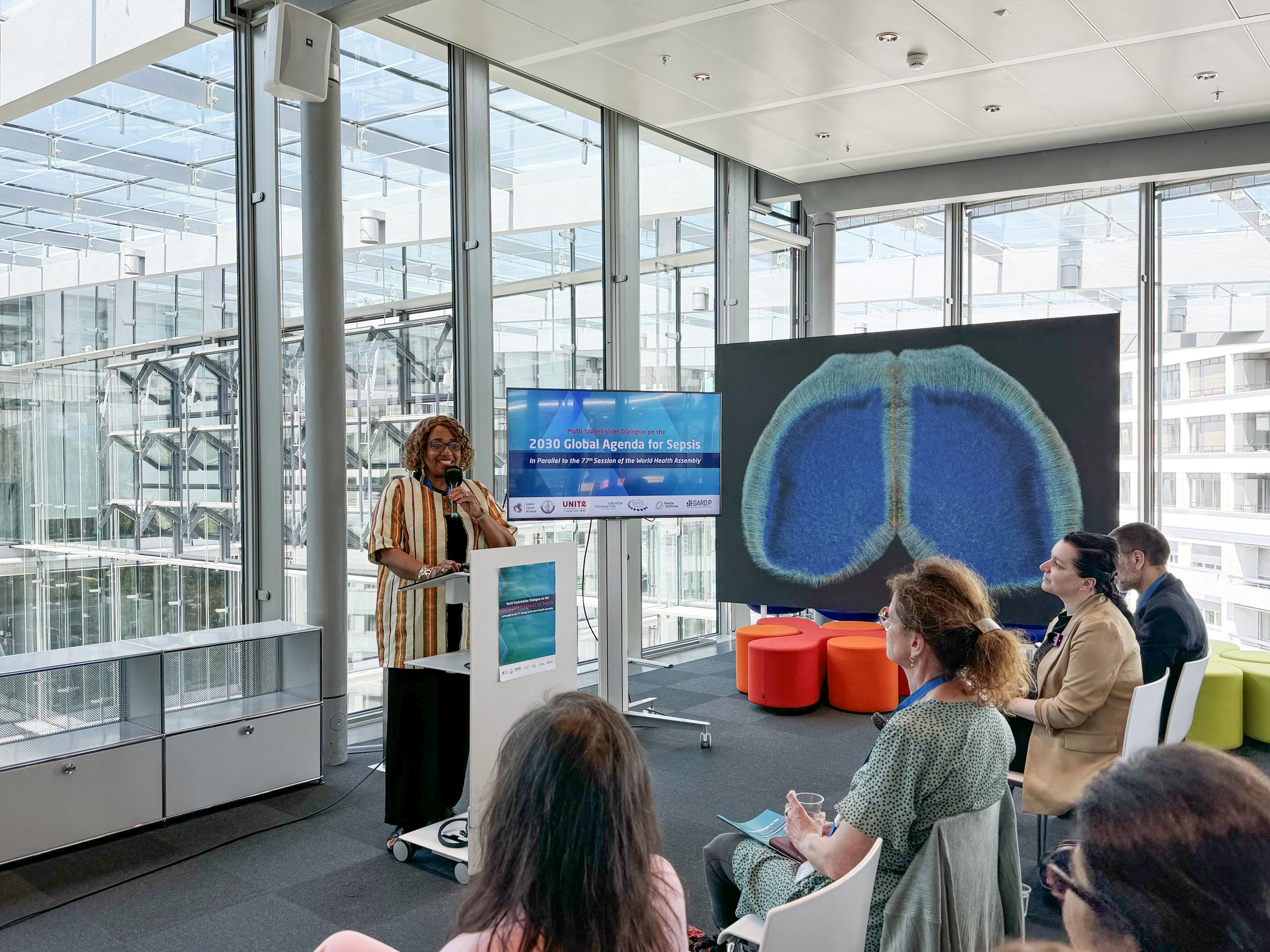
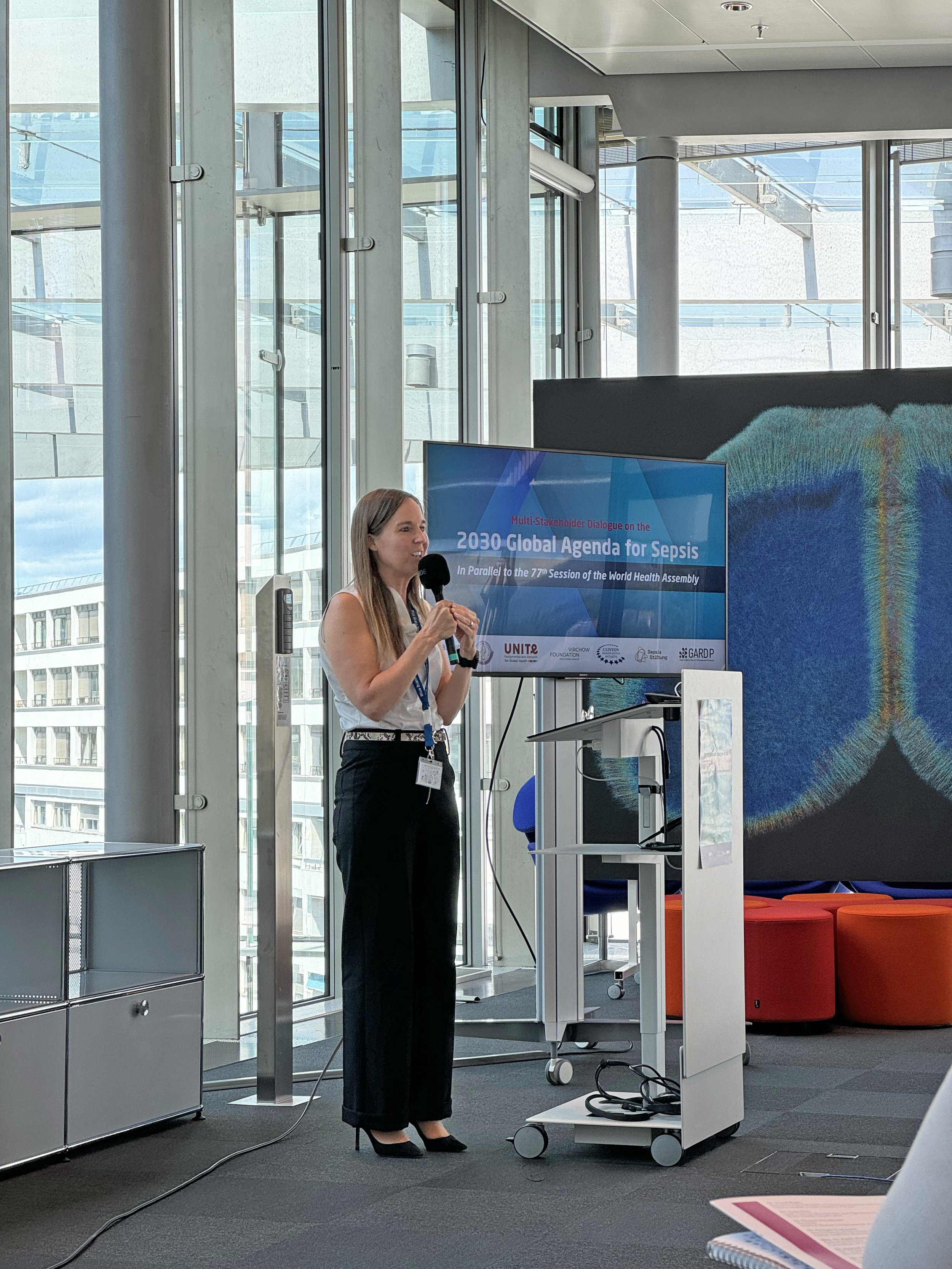
The Global Sepsis Alliance extends its gratitude to co-organizing partners, distinguished speakers, and participants of the Multi-Stakeholder Dialogue on the 2030 Global Agenda for Sepsis convened in Geneva on May 28 in parallel to the 77th session of the World Health Assembly.
The GSA convened the meeting with the 6 strategic partners, whose support was critical in organizing the first High-Level Sepsis Side Events on the Margins of the UN General Assembly in New York and the 2023 World Health Summit in Berlin. The partner organizations include:
The Multi-Stakeholder Dialogue in Geneva was opened by Prof. Konrad Reinhart – Founding President of the GSA, Dr. Rudi Eggers – Director of Integrated Health Services (HIS) of the World Health Organization (WHO), and Dr. Anshu Banerjee – Director of WHO’s Department of Maternal, Newborn, Child and Adolescent Health and Ageing. The speakers highlighted the importance of stronger sepsis response for the attainment of health-related SDGs, and related aspirations for Universal Health Coverage, maternal and child health, and AMR. They also reaffirmed the readiness of WHO and GSA for continued and closer collaboration in the finalization and enforcement of the new global strategy for sepsis in line with the 2017 World Health Assembly Resolution on Sepsis.
The full event can be watched here
The highlight of the opening session was the testimonial by Krista Bracke, a sepsis survivor and journalist from Belgium. First, she stressed the importance of recognition and listening to sepsis survivors by policymakers and decision-makers. Krista’s story of surviving sepsis began in 2009. Her sepsis case inducing multiple organ failure and septic shock led to the amputation of both of her legs. Her amazing story tells about the systemic failures and weaknesses of health systems to prevent and timely identify sepsis, as well as the life-changing experience she and her family had to go through. Over the last years, since regaining strengths, Krista has been actively engaged in awareness raising and advocacy efforts on sepsis and through her voice, trying to protect and save the lives of thousands of others.
Dr. Mariam Jashi – CEO of the Global Sepsis Alliance – former Member of Parliament, and Deputy Minister of Health of Georgia, moderated the meeting and delivered the main presentation on the basic framework of the 2030 Global Agenda for Sepsis. As the first multi-year global vision and strategy for how to alleviate the immense human suffering and economic impact of sepsis worldwide, the 2030 Global Agenda is suggested to be structured around 5 Strategic Pillars:
Strategic Pillar 1: Political Leadership and Multilateral Cooperation
Strategic Pillar 2: Health System Readiness for Sepsis and Its Sequelae
Strategic Pillar 3: Whole-of-Society Response to Sepsis
Strategic Pillar 4: Sepsis Research and Innovations
Strategic Pillar 5: Sepsis in Pandemics and Other Emergencies
Dr. Jashi’s presentation was followed by feedback and comments from multiple stakeholders. The proposed structure of the 2030 Global Agenda and the 5 Strategic Pillars received overwhelmingly positive feedback and endorsement by the meeting participants. The delegates also reaffirmed their readiness for closer collaboration, engagement in subsequent rounds of the document review, and ultimately, for supporting implementation of the first global strategy.
The stakeholders also shared additional inputs to the draft framework of the 2030 Global Agenda for Sepsis. As an example, a stronger focus on primary health care was recommended, as an important platform for prevention, early detection, referral, and timely treatment of sepsis cases. The partners also suggested a stronger focus on training nurses and midwives as key frontline workforce managing sepsis cases, especially among women and children. Finally, in addition to integrating sepsis into undergraduate medical curricula, engagement of medical students in awareness-raising campaigns, and considering region-specific limitations of IT capacities, was also recommended.
The GSA is grateful for the supportive positions and insightful contributions from partners and delegates of the Geneva Dialogue. The names and affiliations of the speakers are presented below according to the chronology of the actual proceedings of the May 28 meeting.
Dr. Ricardo Baptista Leite – President, UNITE Parliamentarians Network for Global Health and CEO of the Health AI Agency
Mr. Carsten Schicker – CEO and Managing Director World Health Summit
Dr. Benedetta Allegranzi – Unit Head, Infection Prevention and Control (IPC), Unit Technical Lead, IPC Taskforce and the Global IPC Network, World Health Organization
Ms. Victoria Grandsoult – Managing Director, Virchow Foundation for Global Health
Dr. Teri Reynolds – Unit Head, Clinical Services and Systems, Technical Lead, Acute Care Action Network (ACAN), World Health Organization
Dr. Janet Diaz Lead – Clinical Management and Operations Unit World Health Organization
Dr. Eleanor Nwadinobi – President Medical Women’s International Association (MWIA)
Dr. François Franceschi – Serious Bacterial Infections Project Leader, Global Antibiotic Research & Development Partnership (GARDP)
Ms. Lucia Perez Gomes – International Federation of Medical Students Associations
Dr. Mohammed Abdulaziz – Head of the Division of Disease Control and Prevention, Africa CDC
Mrs. Stacey Orsat – President, Europe, S Asia, ANZ Masimo
Ms. Cécile Barral-Baron – Global Public Affairs Lead, Vaccines Sanofi
Dr. Iwan Märki – Chief Technology Officer and Co-Founder Abionic
Dr. Ghada Zoubaine – Head of Partnerships and Stakeholder Engagement International Center for Antimicrobial Resistance Solutions (ICARS), and
Dr. Eliza Lo Chin – Executive Director, American Medical Women’s Association
The GSA also expresses its special gratitude to the following partner organizations for their continued support of the sepsis cause:
Dr. David Ripin – Vice President of Access Programs and Chief Scientific Officer at the Clinton Health Access Initiative (CHAI)
Dr. Keith Martin – Executive Director Consortium of Universities for Global Health, and
Prof. Kevin Outterson – Founder & Executive Director, CARB-X
More about the 2030 Global Agenda for Sepsis
The 2030 Global Agenda for Sepsis is intended to consolidate the latest evidence and knowledge on (a) the human, societal, and economic burden of sepsis, (b) key foundations and achievements in the global fight against sepsis over the past two decades, (c) remaining challenges towards more effective prevention, early identification and treatment of sepsis, and (d) the way forward for reinvigorating the sepsis response at global, regional and national levels.
The document will reiterate the current reality that sepsis every year affects 48.9 million people worldwide, including 26.2 million women and girls, and 20.3 million under-5 children. Sepsis claims the lives of 13.7 million children, women, and men annually, including 4.95 million deaths associated with or attributable to AMR. An estimated 5.1 million deaths from sepsis result from secondary infectious complications of non-communicable diseases (NCDs) or injury, and people affected by HIV, TB, and Malaria remain at an increased risk of sepsis. Finally, the new strategic document will highlight that based on the experience from COVID-19, any future pandemics will result in an increased risk of sepsis and related mortality.
The 2030 Global Agenda for Sepsis will reaffirm existing risks that health-related SDGs and aspirations for Universal Health Coverage (UHC), Maternal, Neonatal and Child Health (MNCH), Antimicrobial Resistance (AMR), Pandemic Accord or Patient Safety cannot be achieved without a reinvigorated sepsis response. Yet, sepsis is still not visible in the mainstream of Global Health and Development Architecture. As of 2024, less than 10% of UN Member States have prioritized sepsis in their national policies and action plans and implemented the historic 2017 World Health Resolution on Sepsis (WHA70.7).
Based on the situation and gap analysis of the global sepsis response, as the way forward, the GSA is proposing to structure the 2030 Global Agenda for Sepsis around the following 5 Strategic Pillars:
Political Leadership and Multilateral Cooperation
Health System Readiness for Sepsis and Its Sequelae
Whole-of-Society Response to Sepsis
Sepsis Research and Innovations
Sepsis in Pandemics and Other Emergencies
The full narrative document of the 2030 Global Agenda for Sepsis is currently under internal revision by the GSA Board members and Chairs of Regional Sepsis Alliances.
From July 15 through September 5 the draft document will be shared for external consultation rounds that will engage all member and partner organizations of the GSA from public and private sectors, academia, and civil society. Special attention will be given to inputs and contributions from sepsis survivors and families who have lived through the sepsis experiences.
The 2030 Global Agenda for Sepsis as the first multi-year global strategy will be officially launched in September on the margins of the 2024 World Sepsis Day campaigns in Berlin and globally across the Regional Sepsis Alliances.
The document will serve as the common vision for mobilizing critically needed political support and multilateral cooperation for positioning sepsis in the mainstream of the Global Health Architecture, as well as health system strengthening, awareness raising, research, innovations, and accountability for this global health threat.
The Global Sepsis Alliance looks forward to the continued dialogue with multiple stakeholders for finalizing and implementing the 2030 Global Agenda for Sepsis to save the lives of millions of children, women, and men globally.

